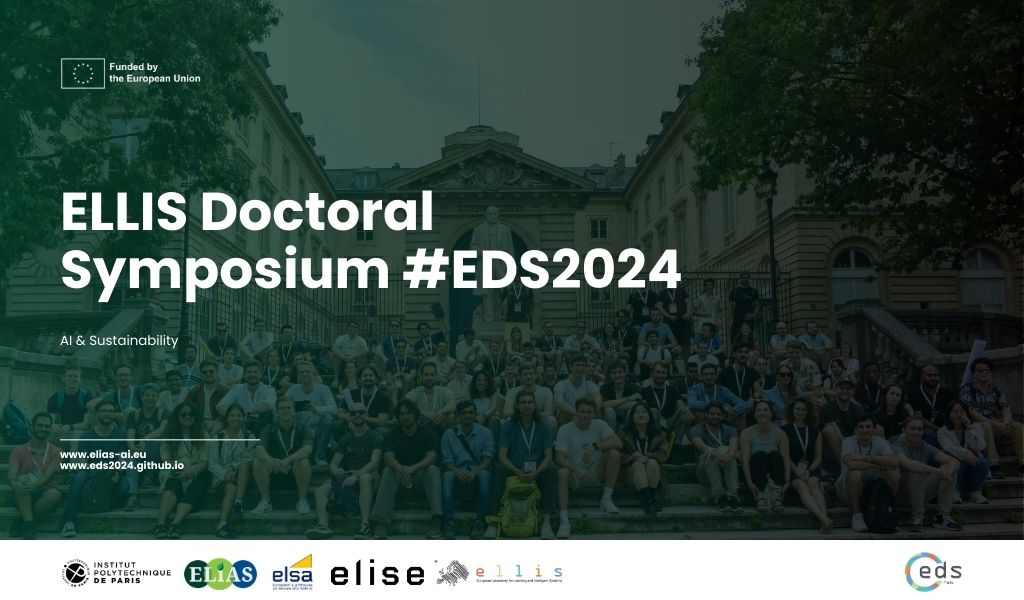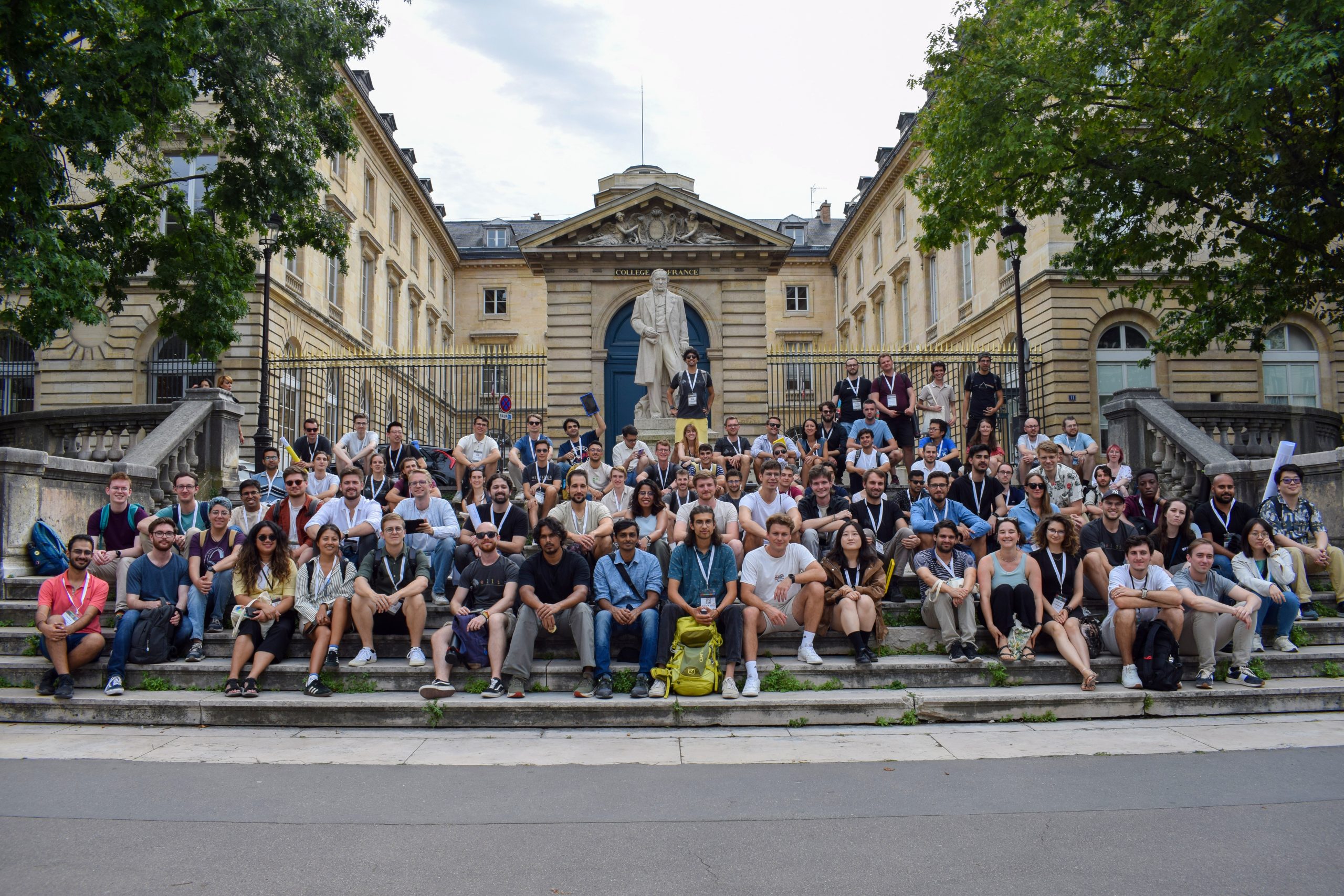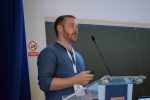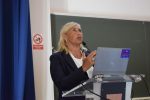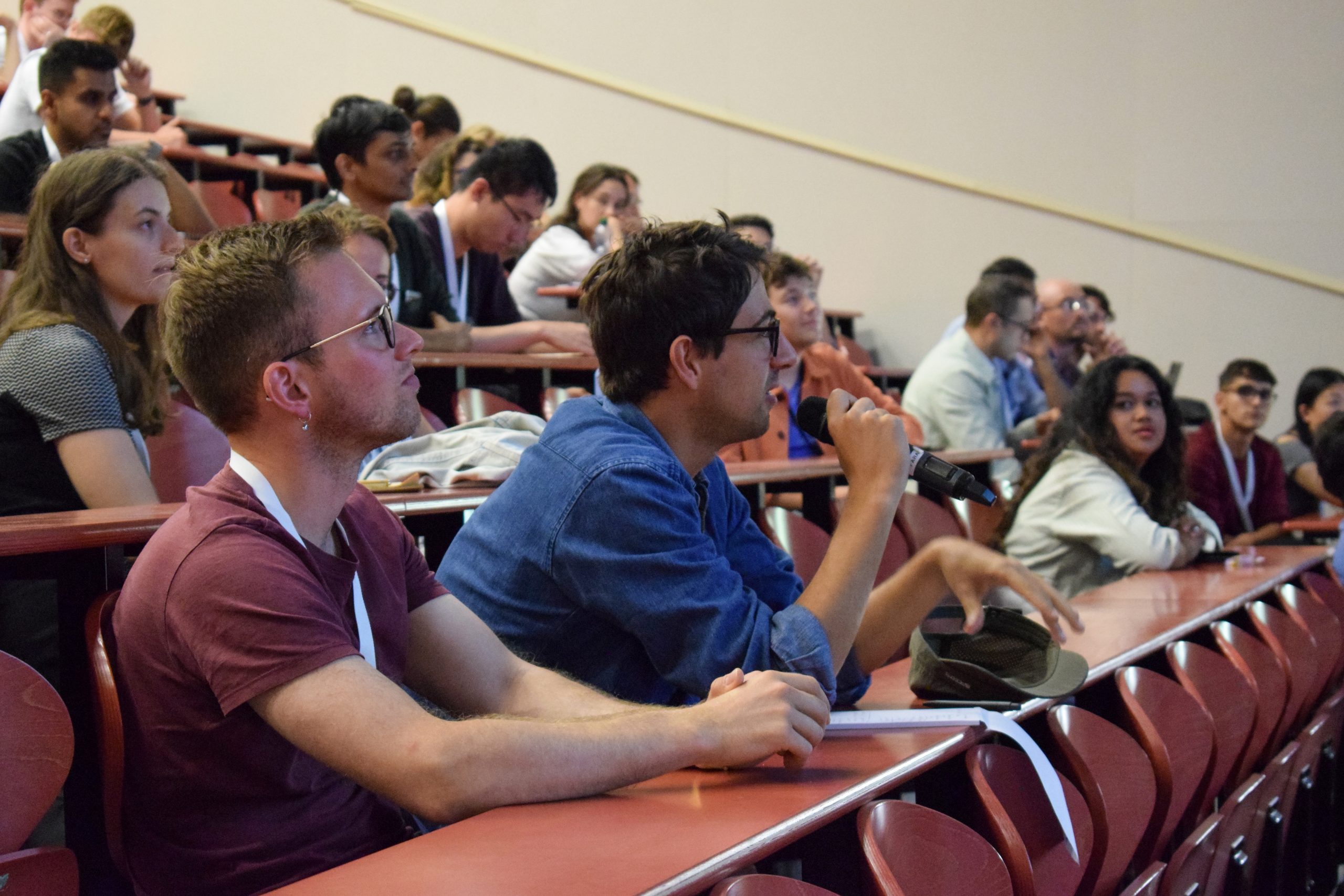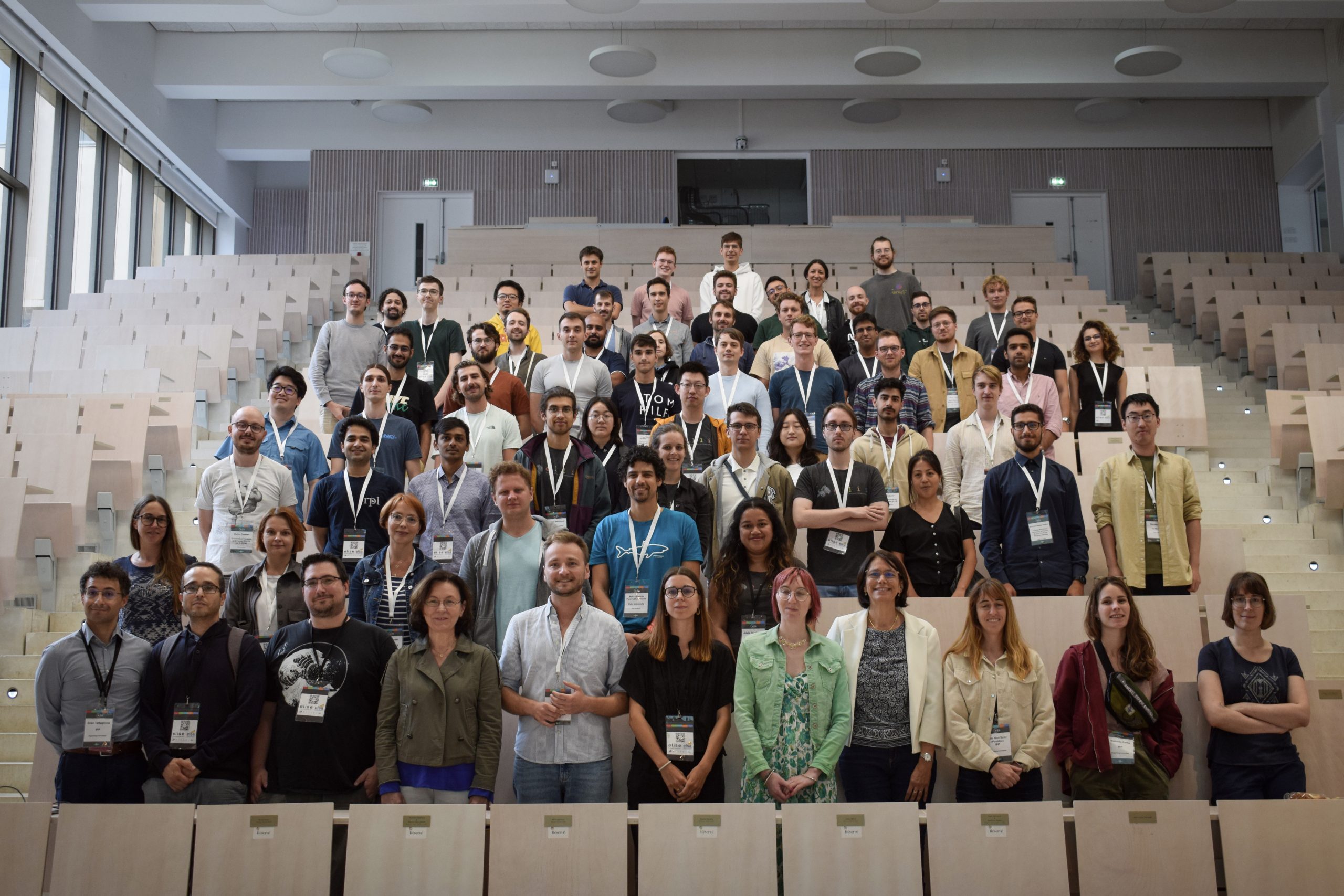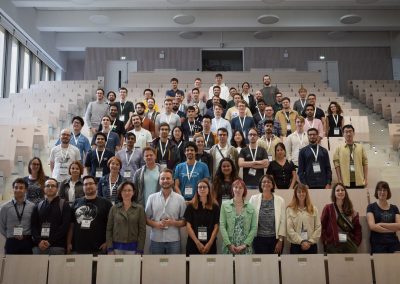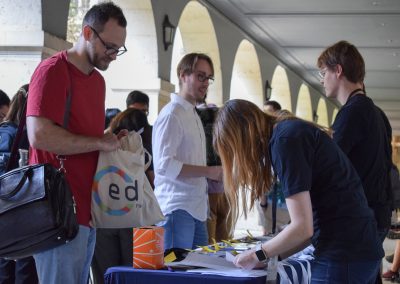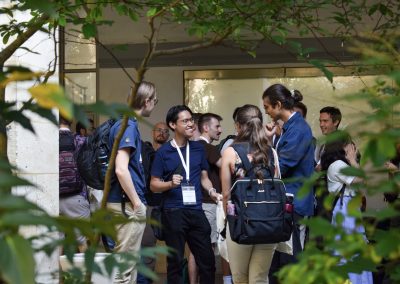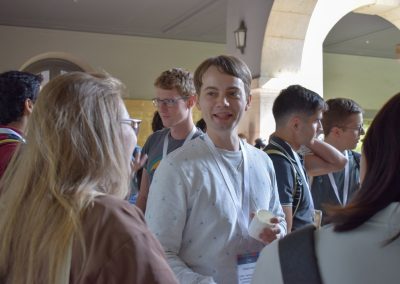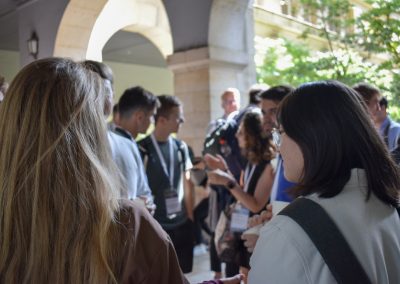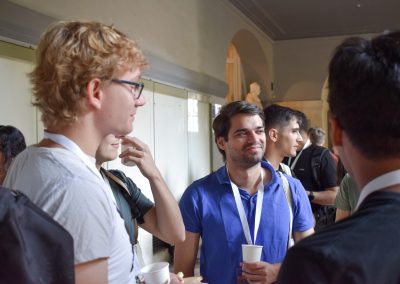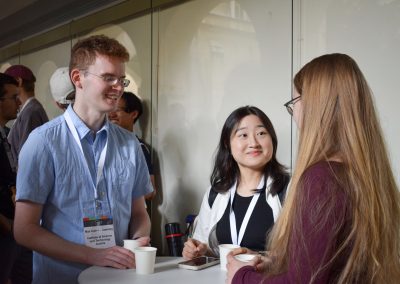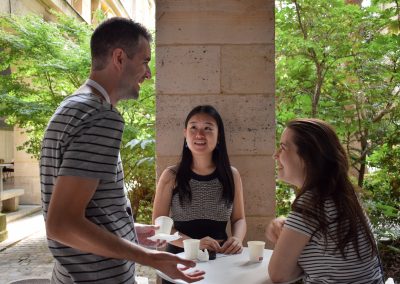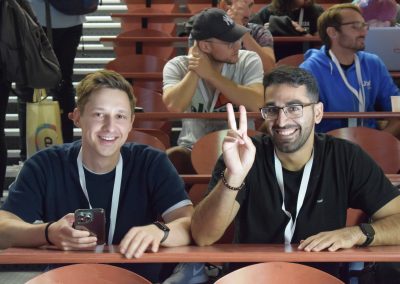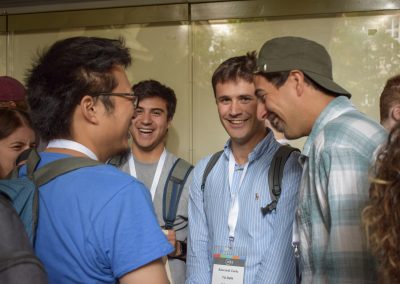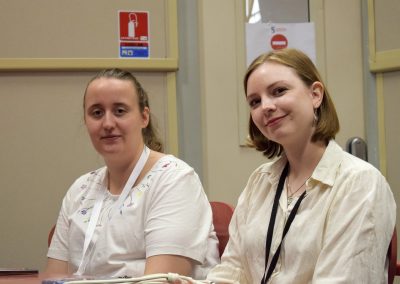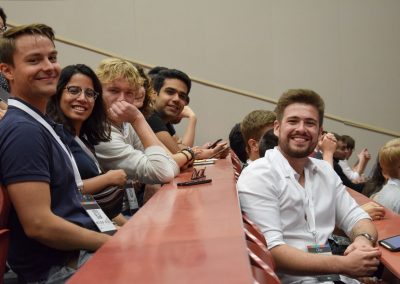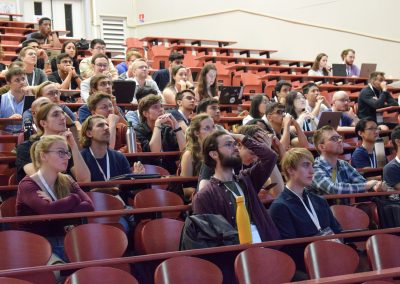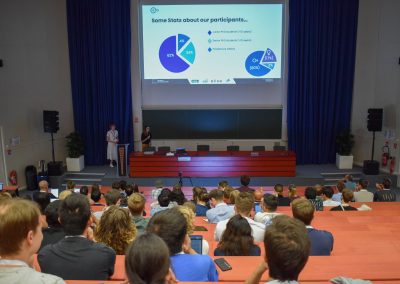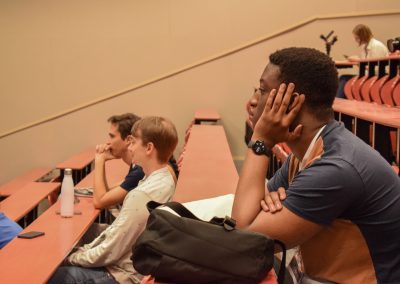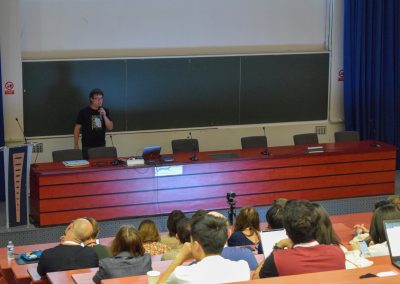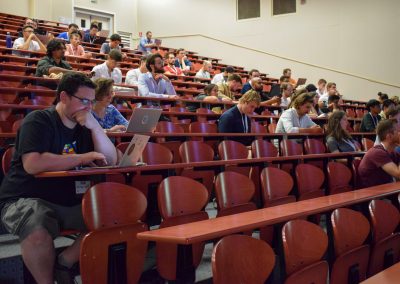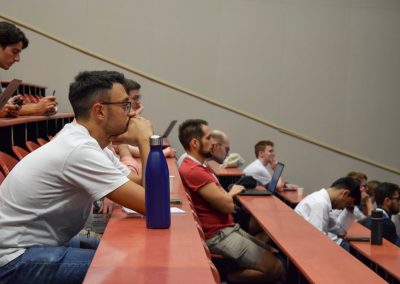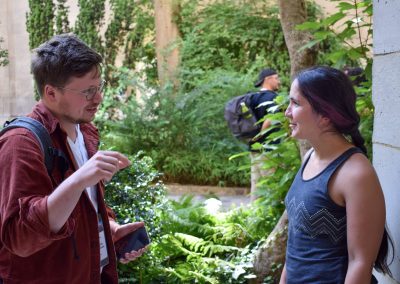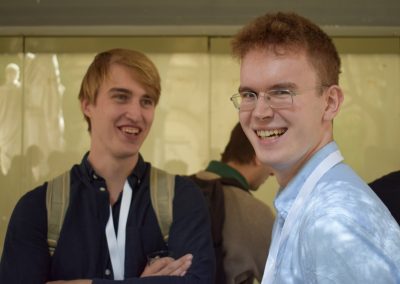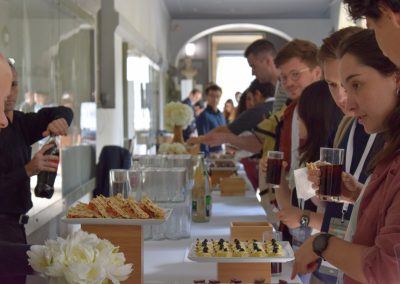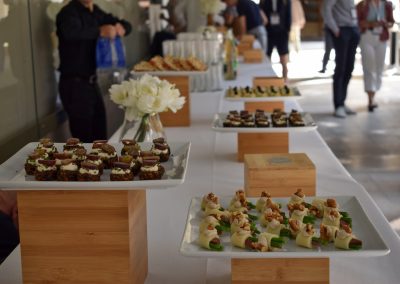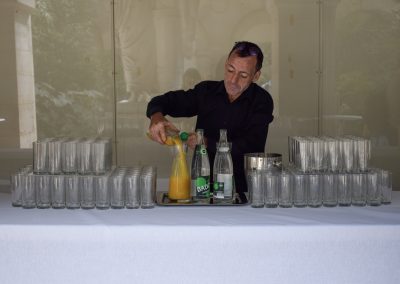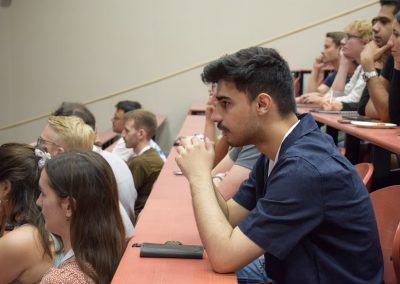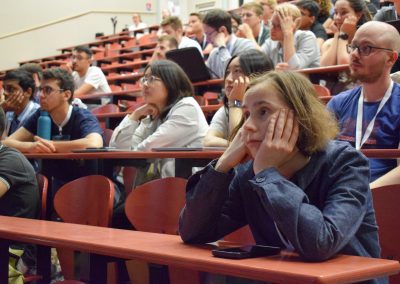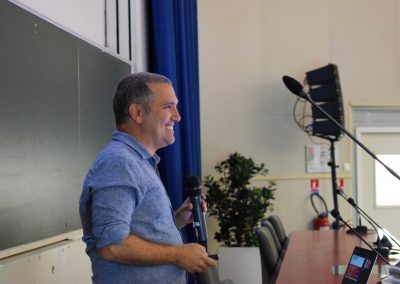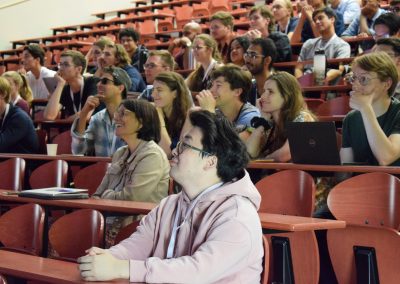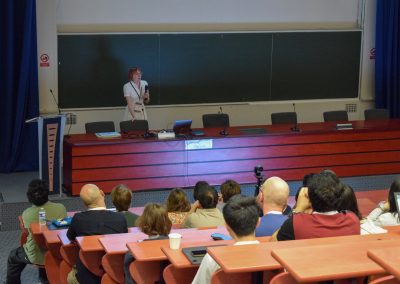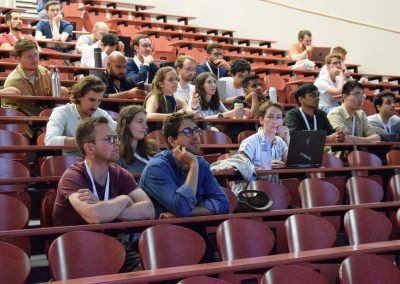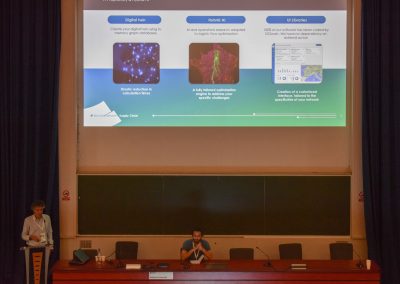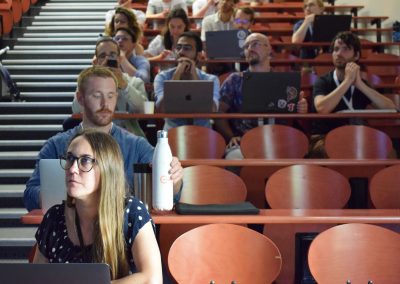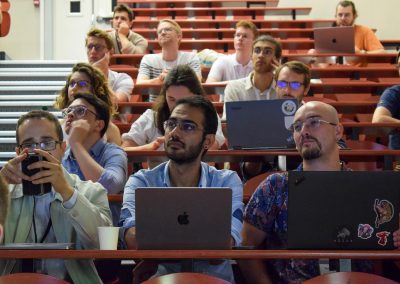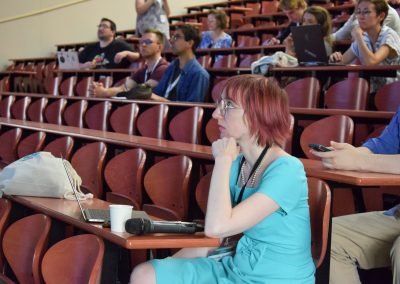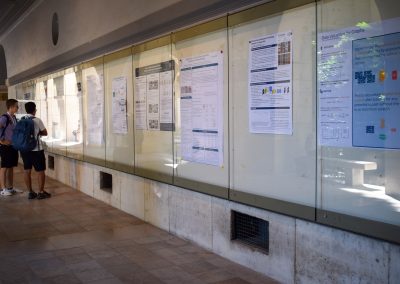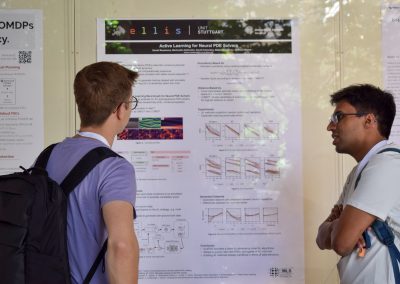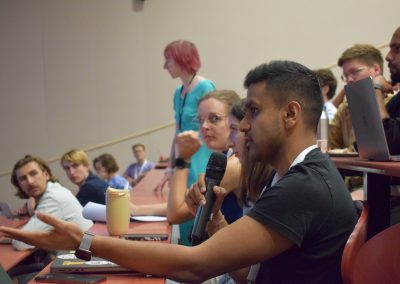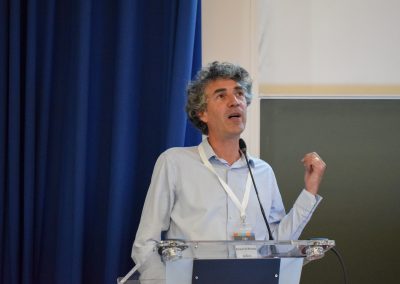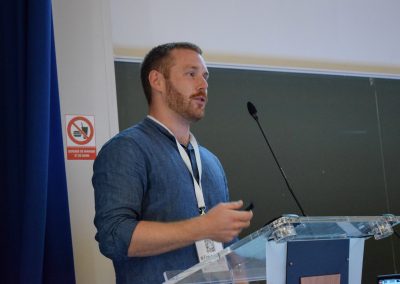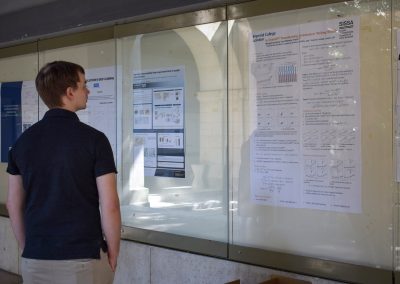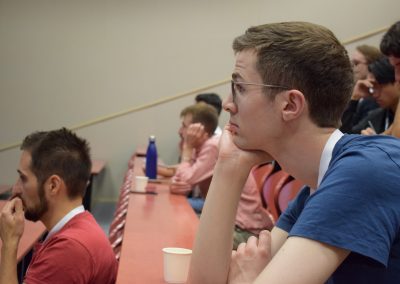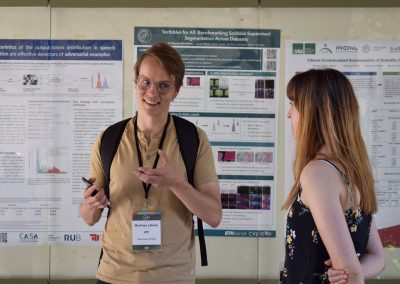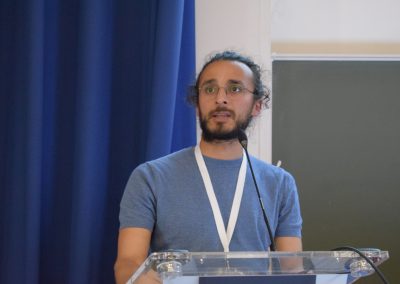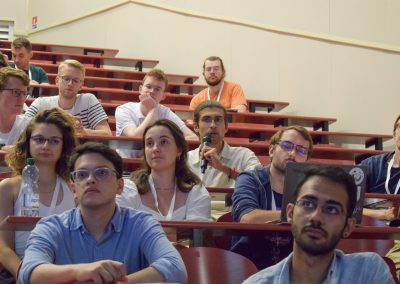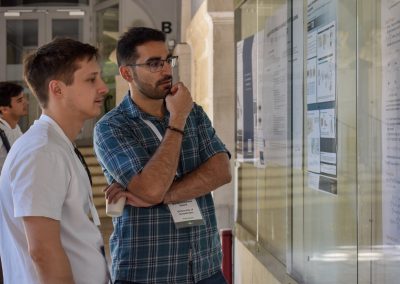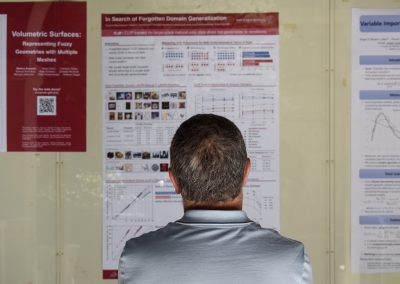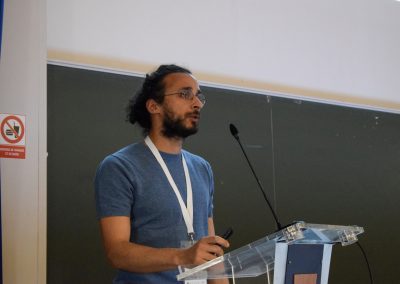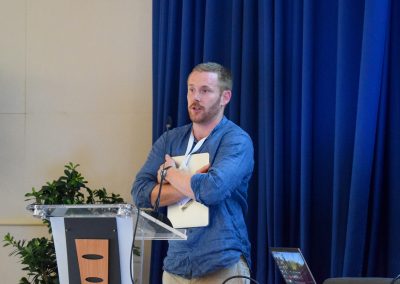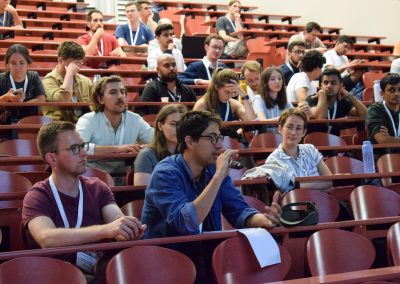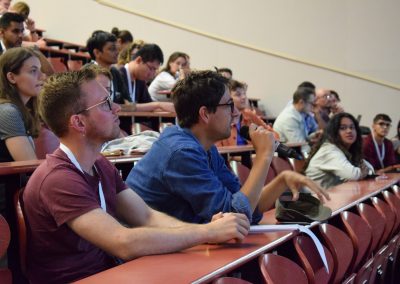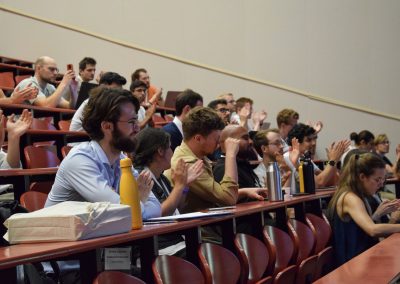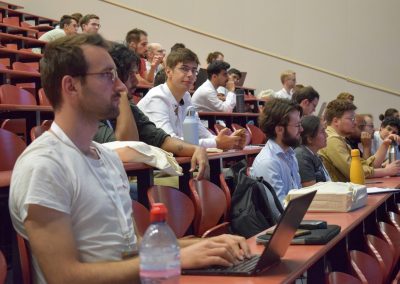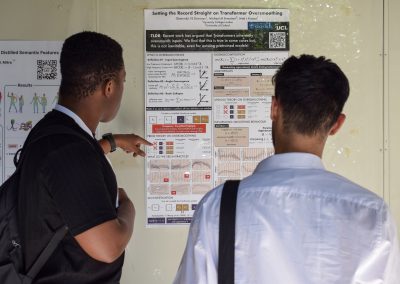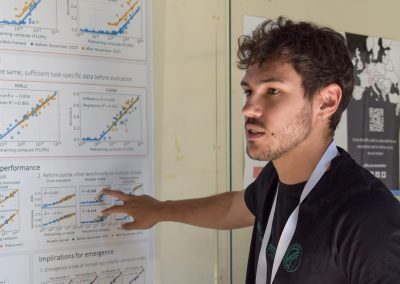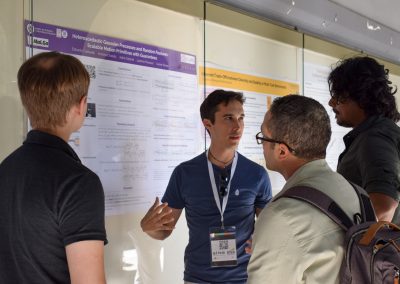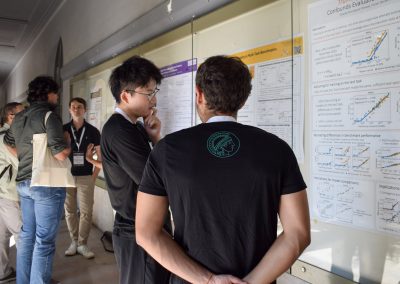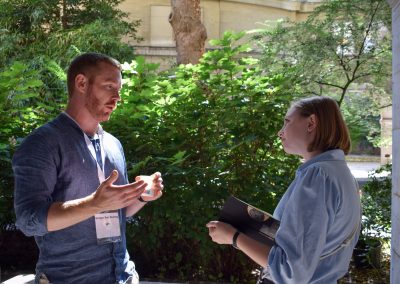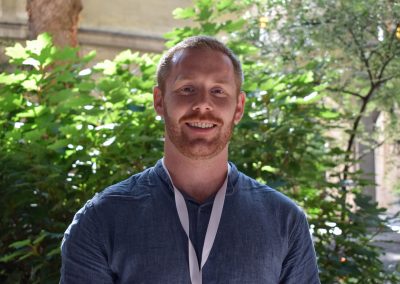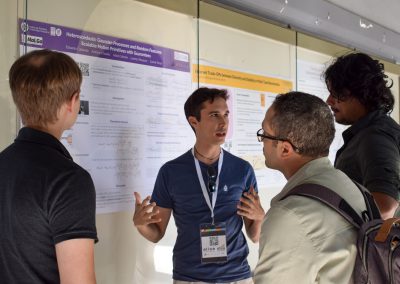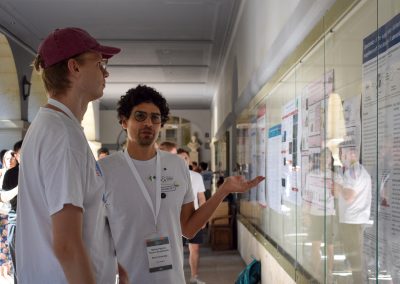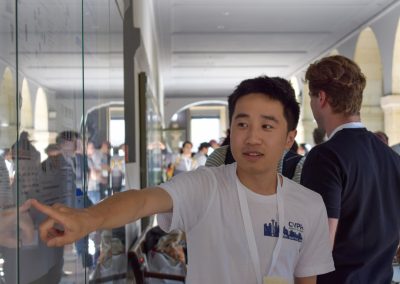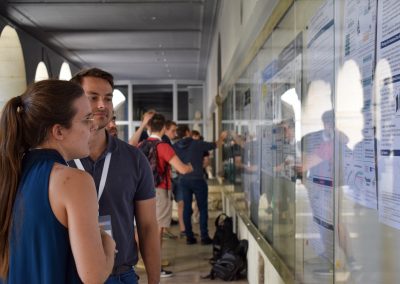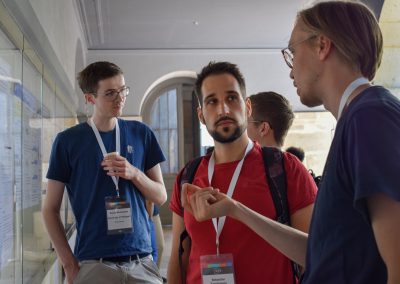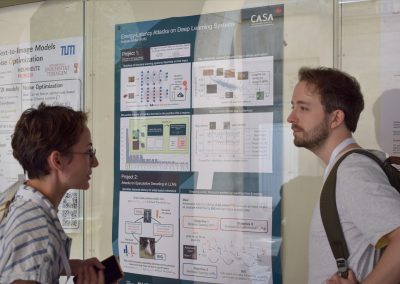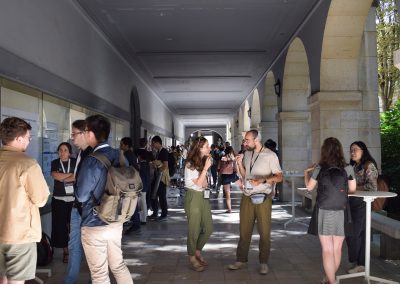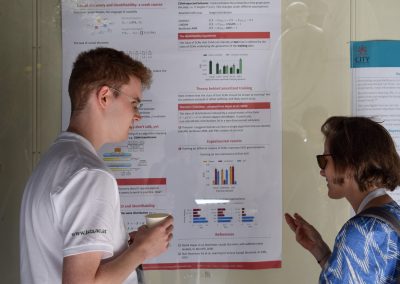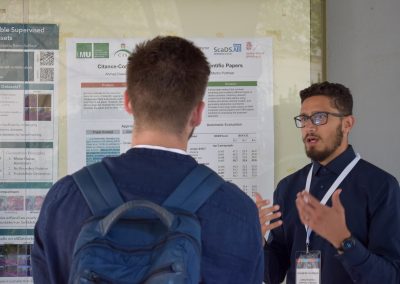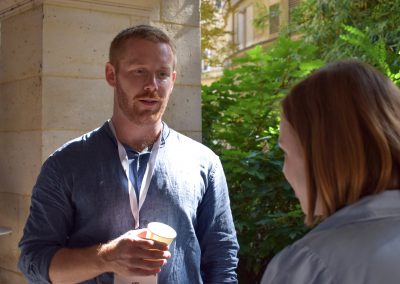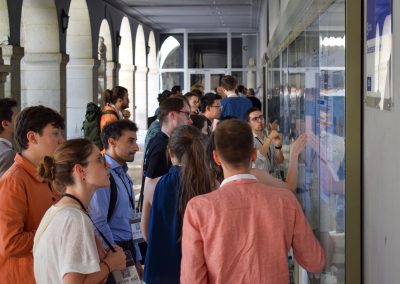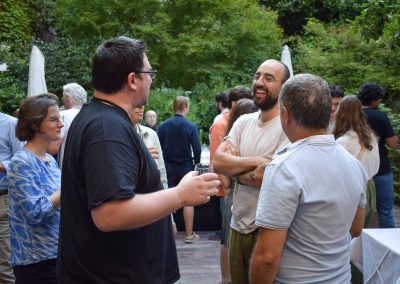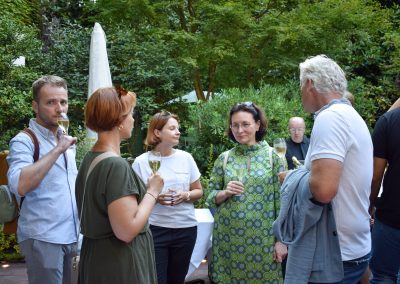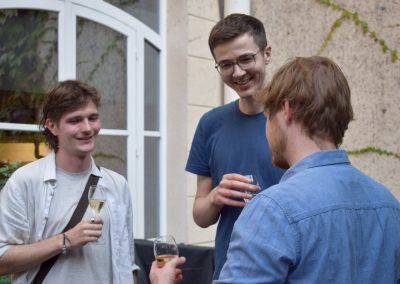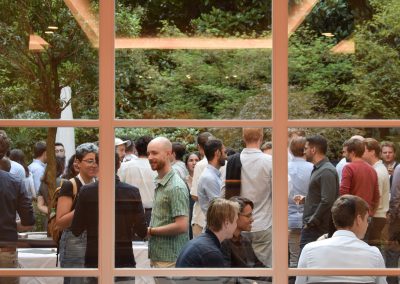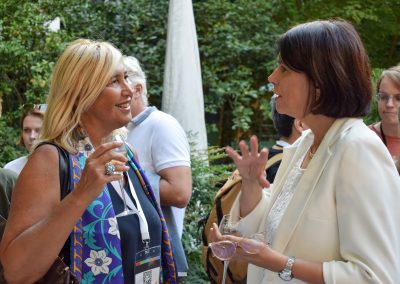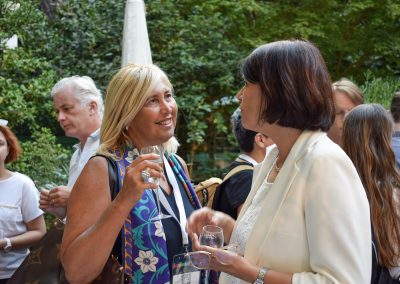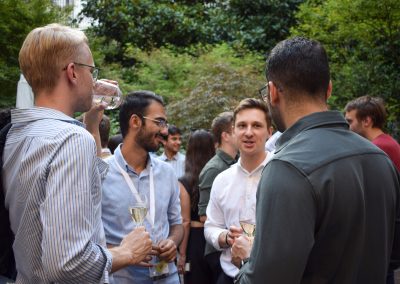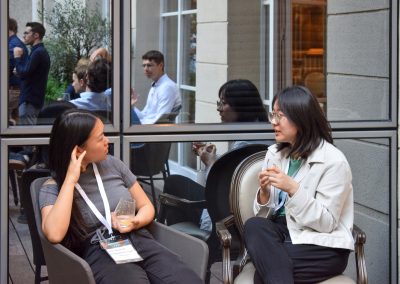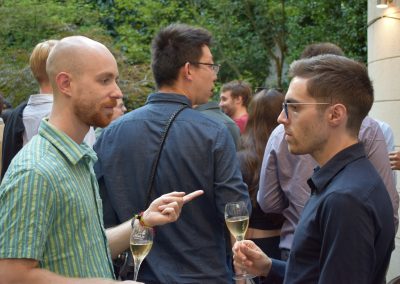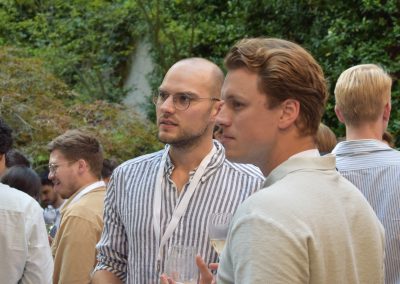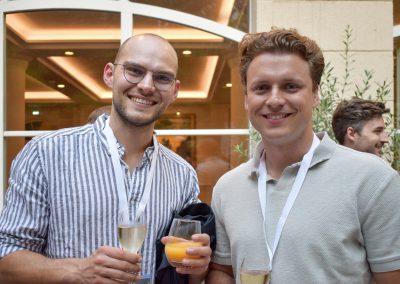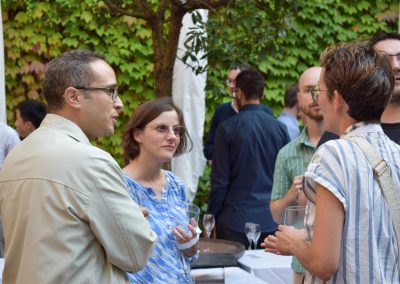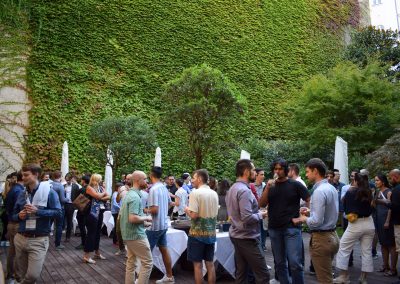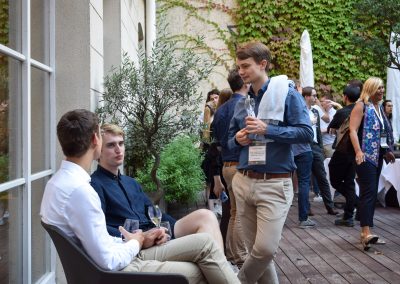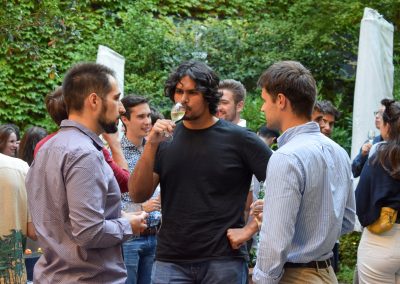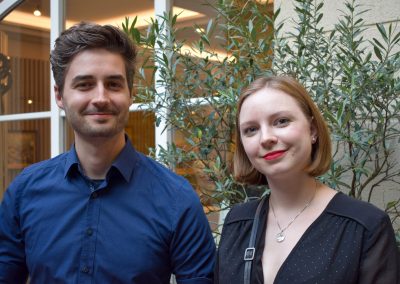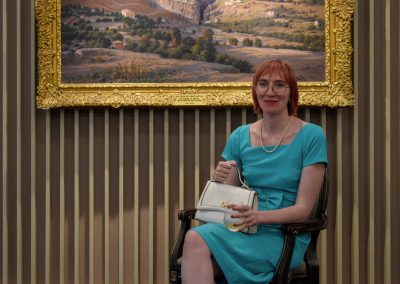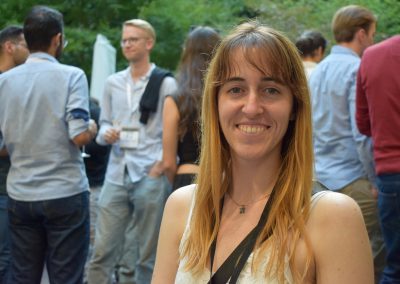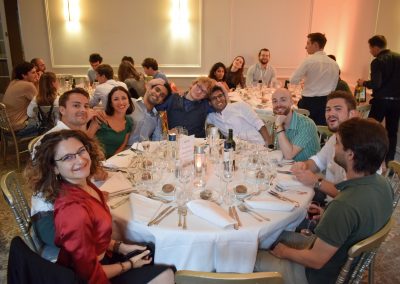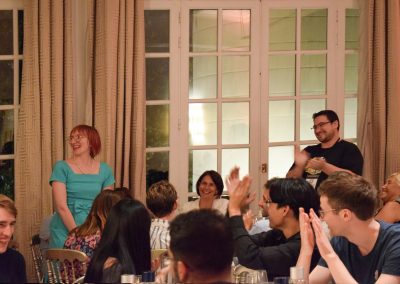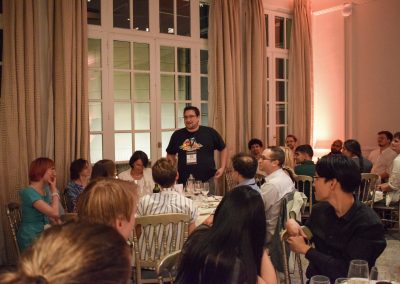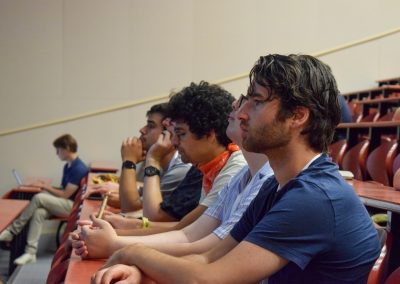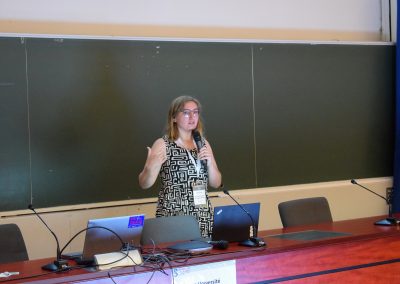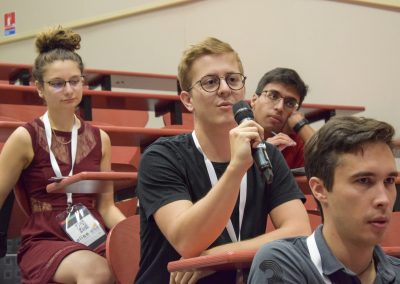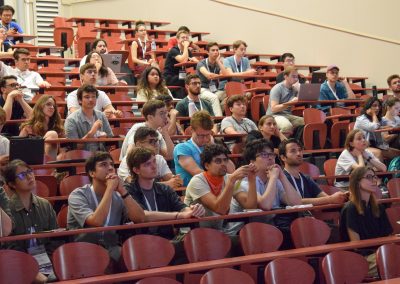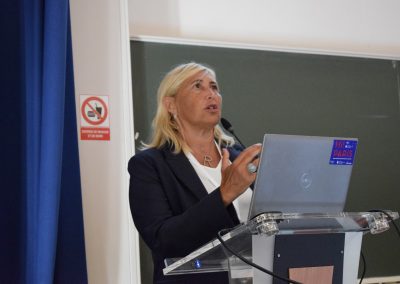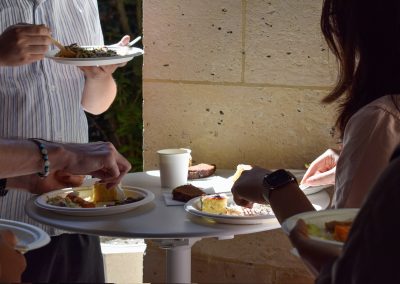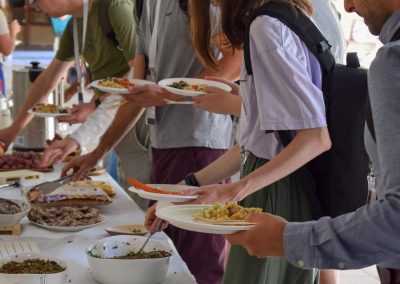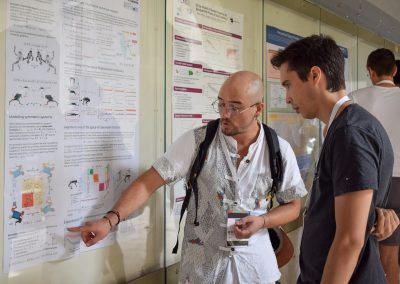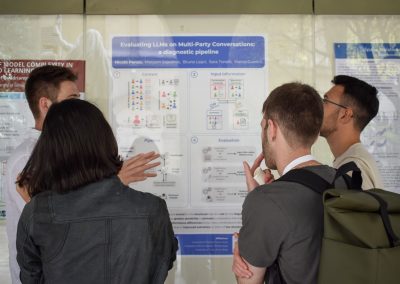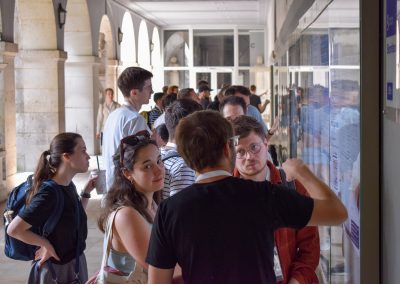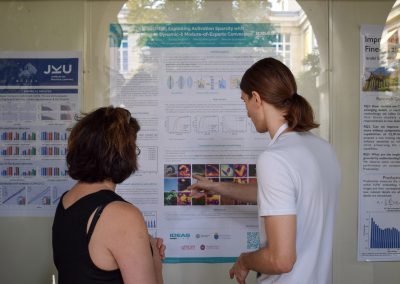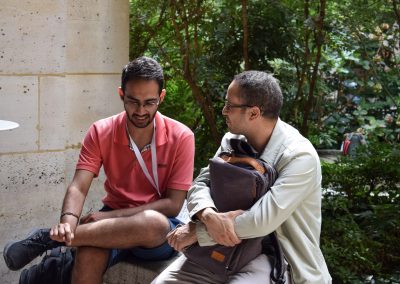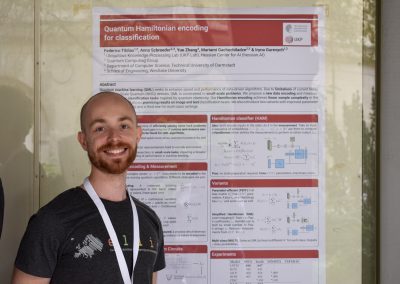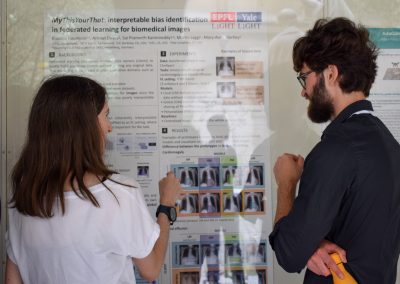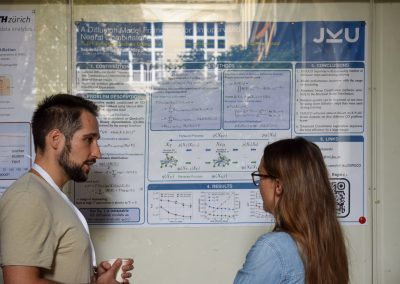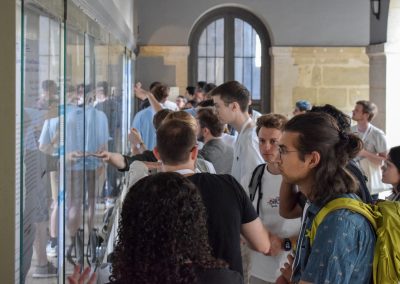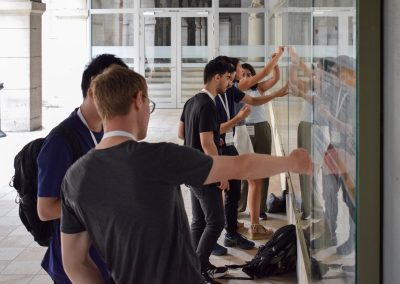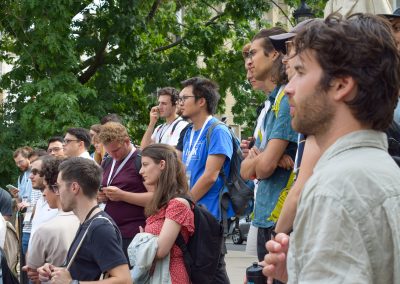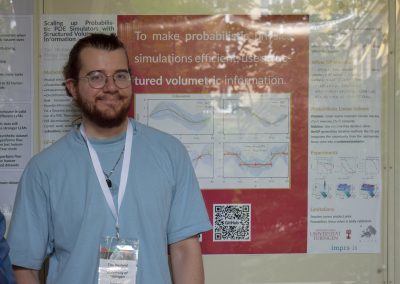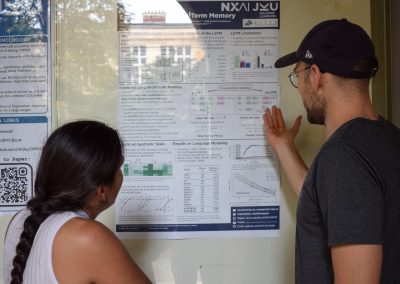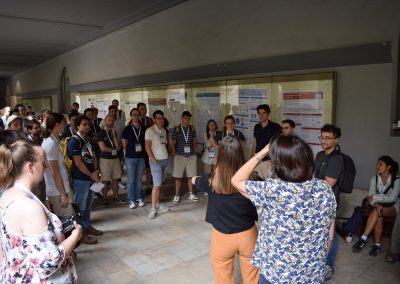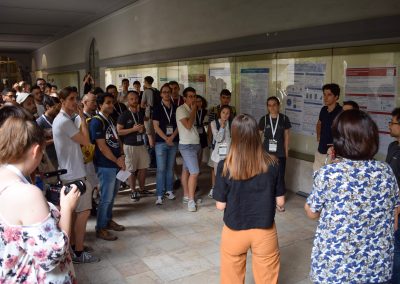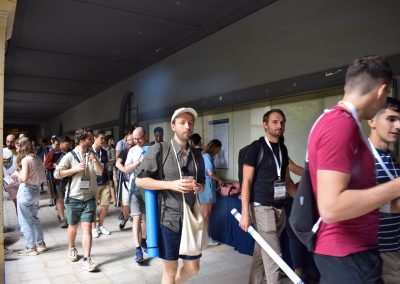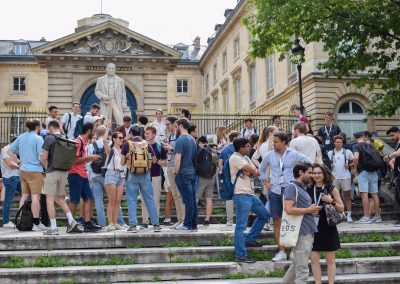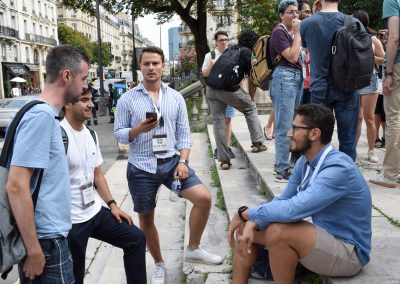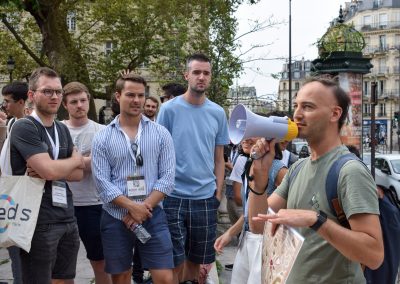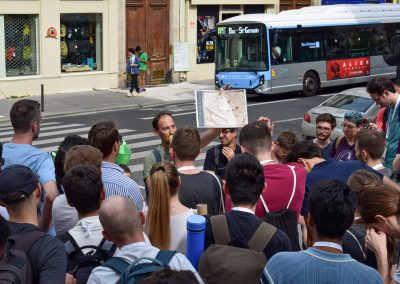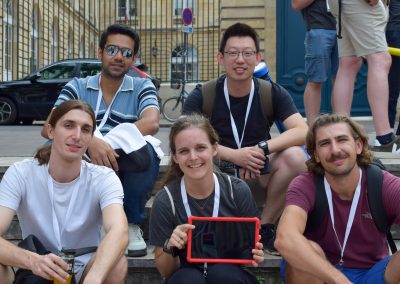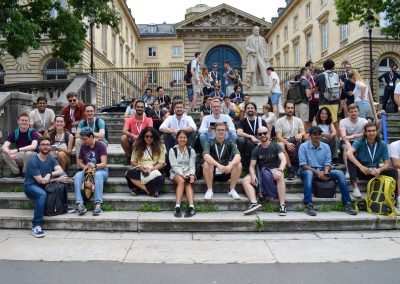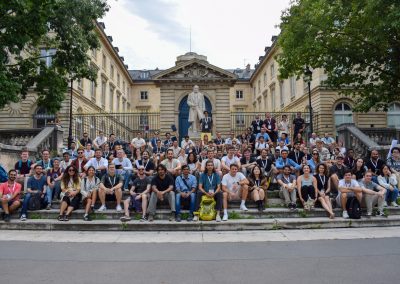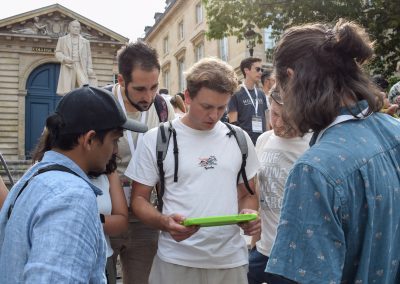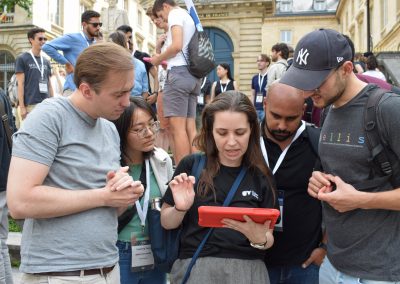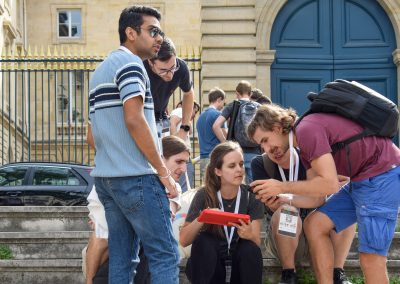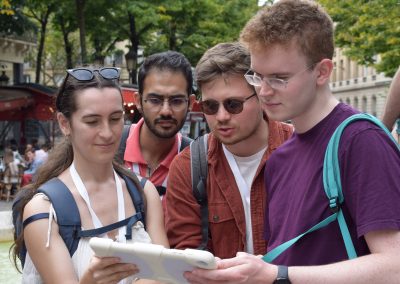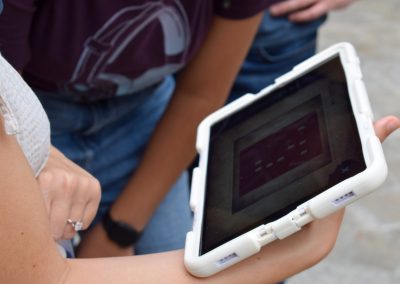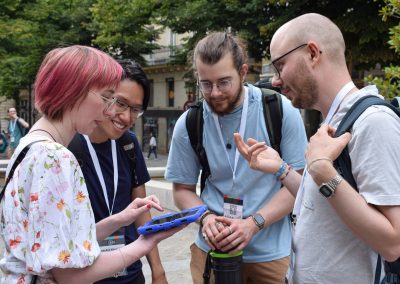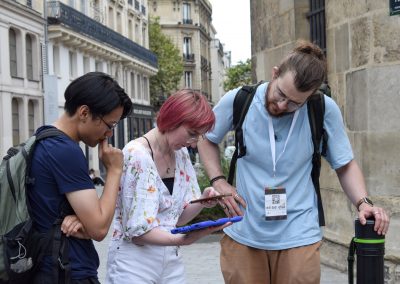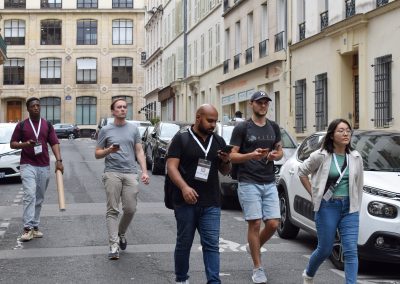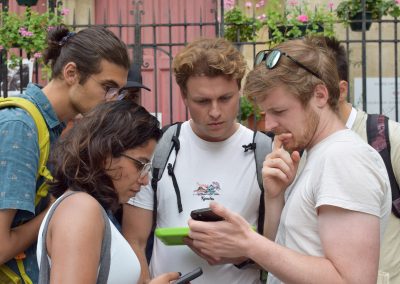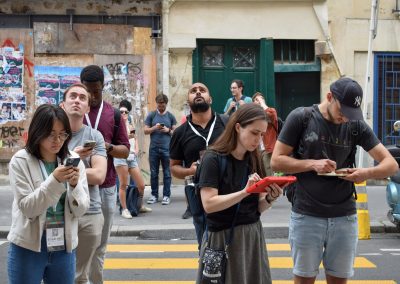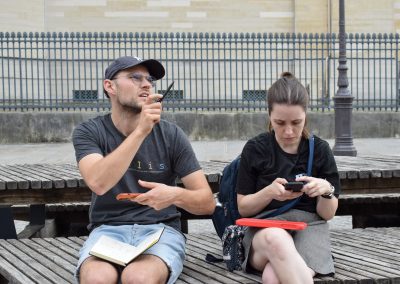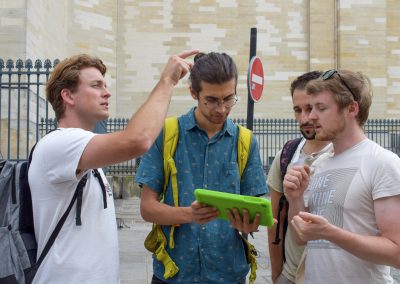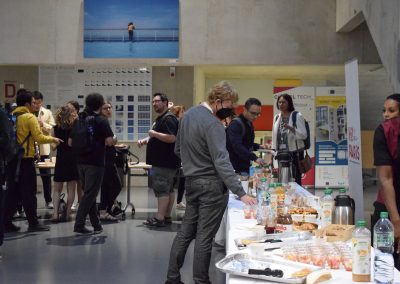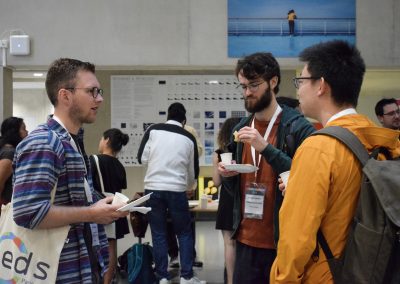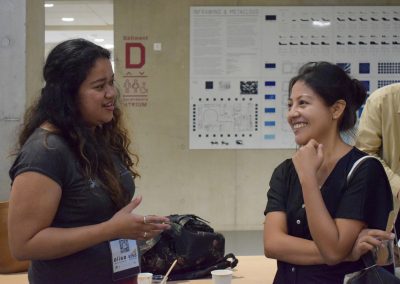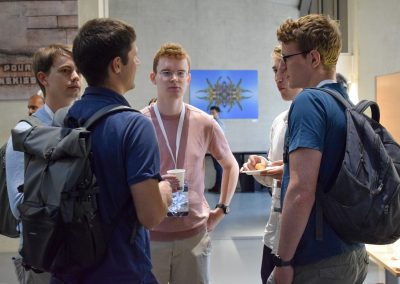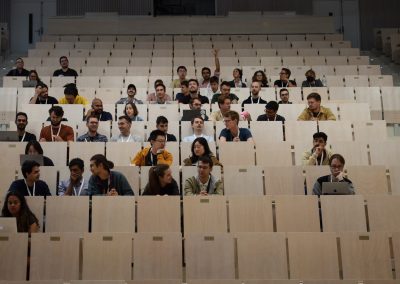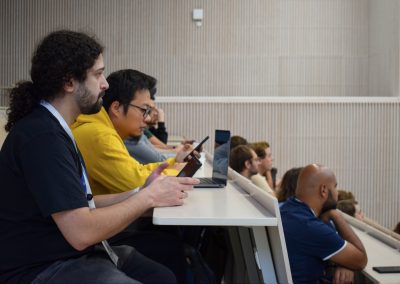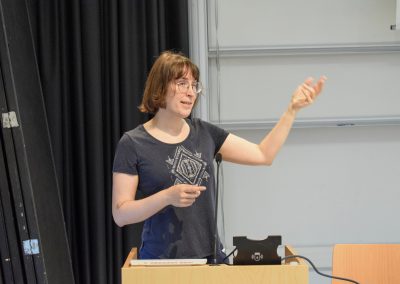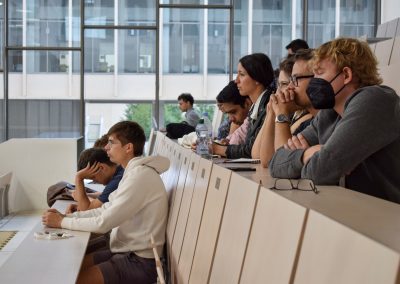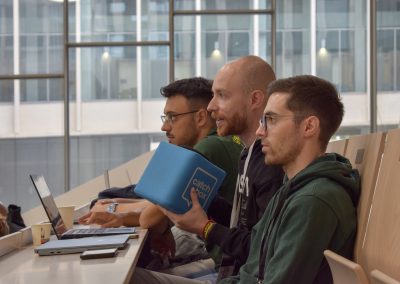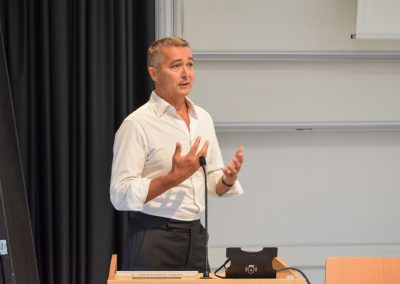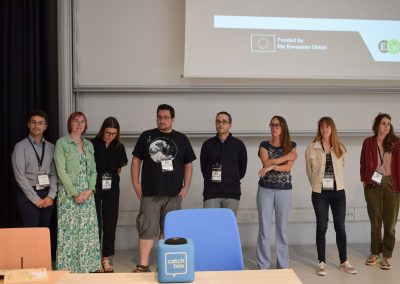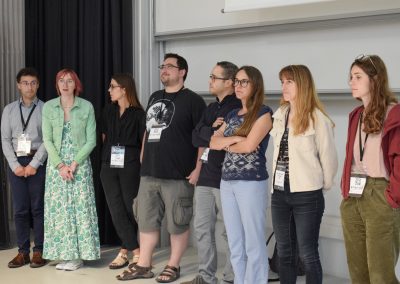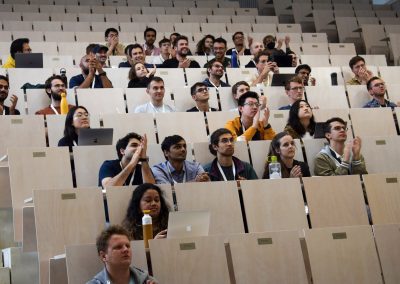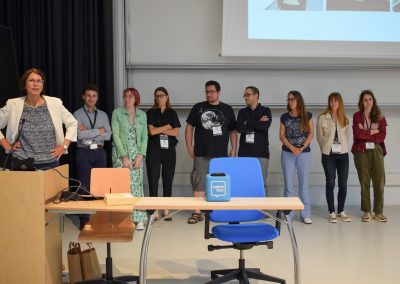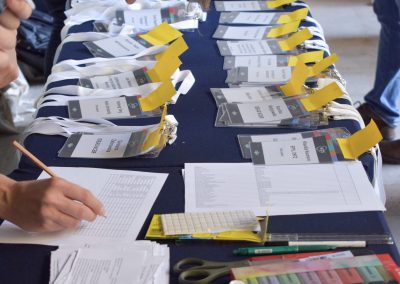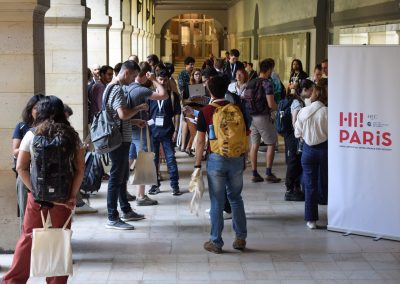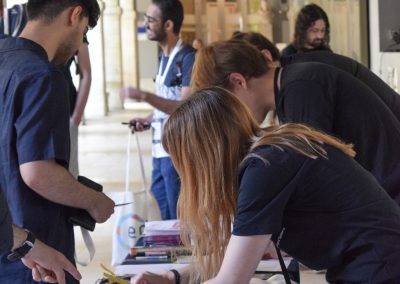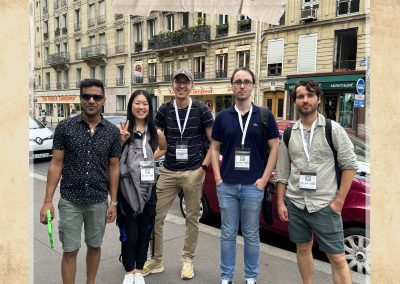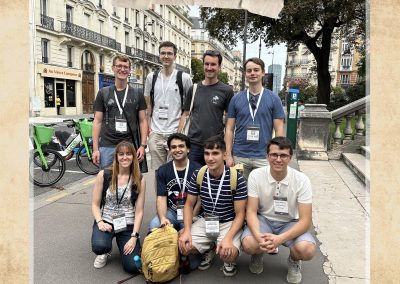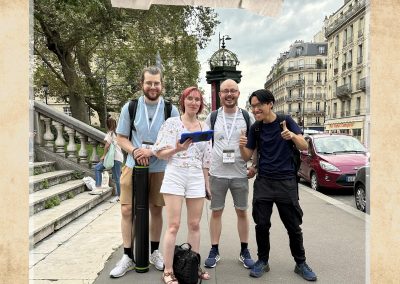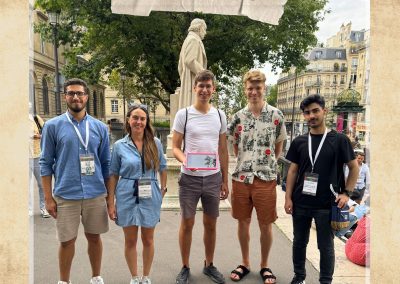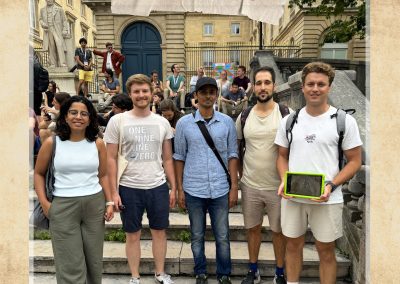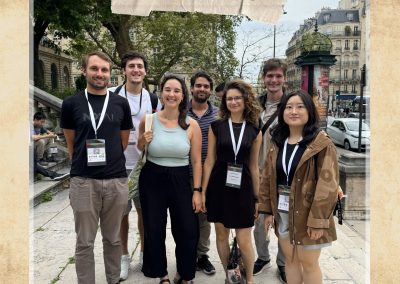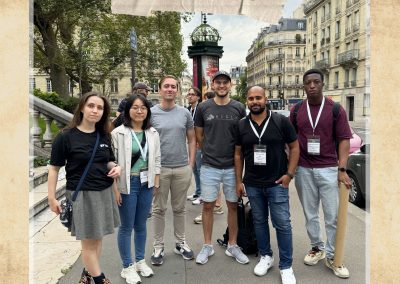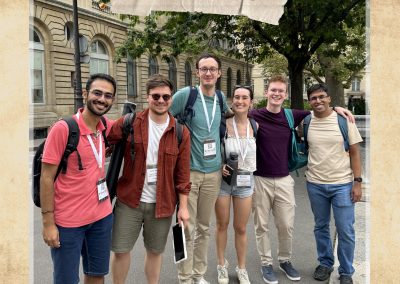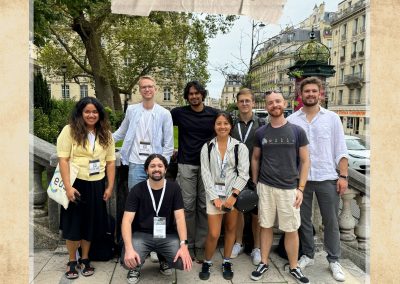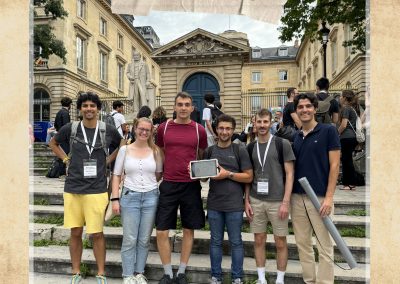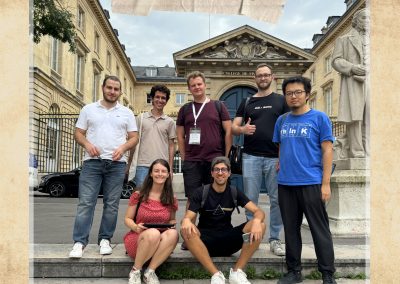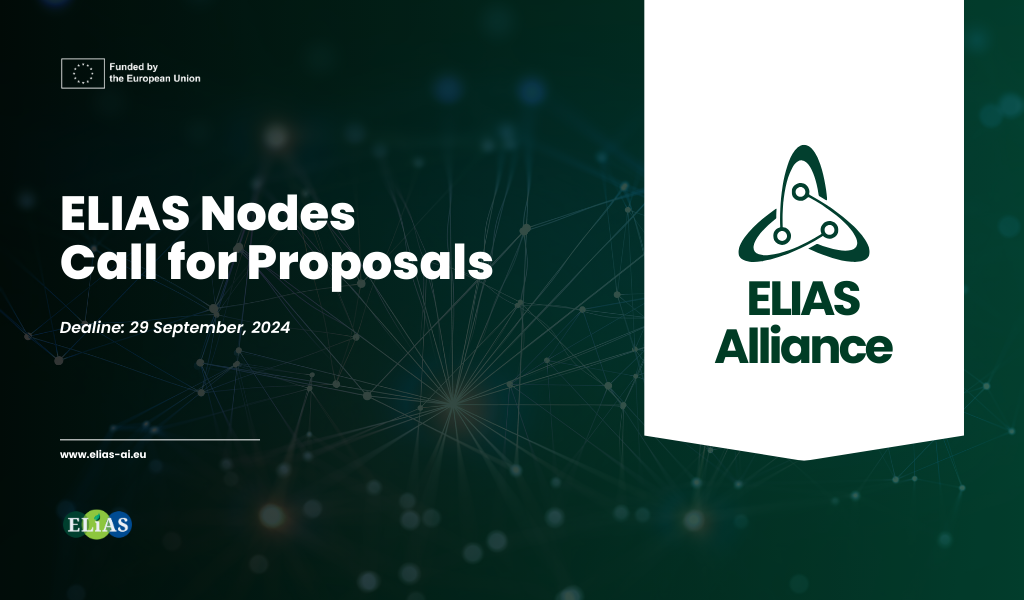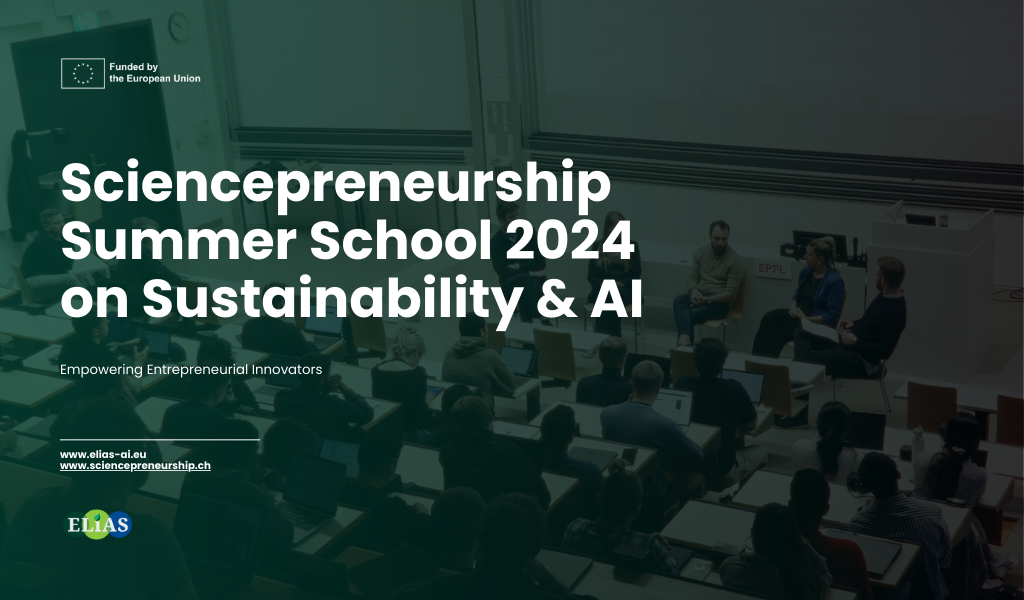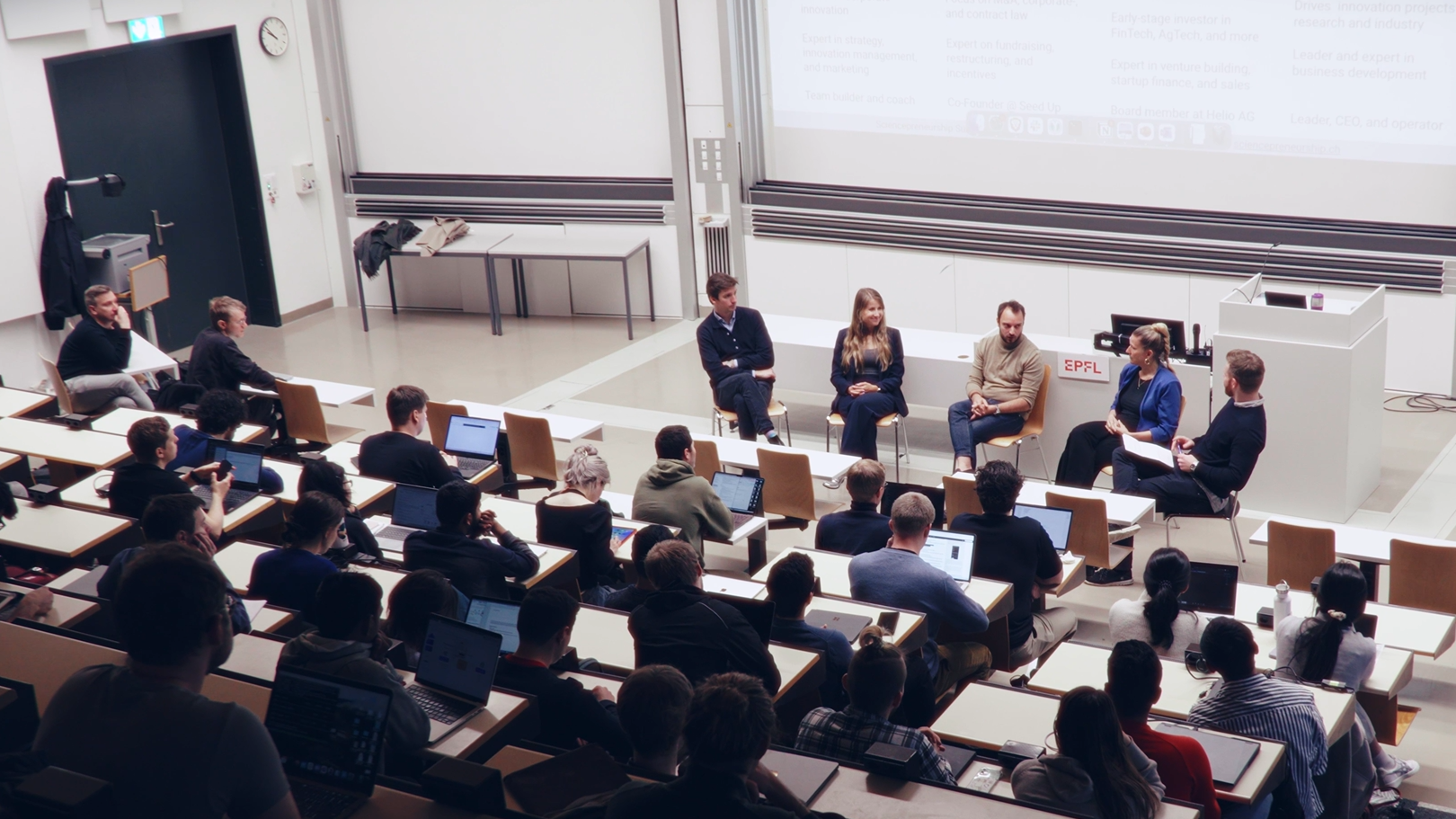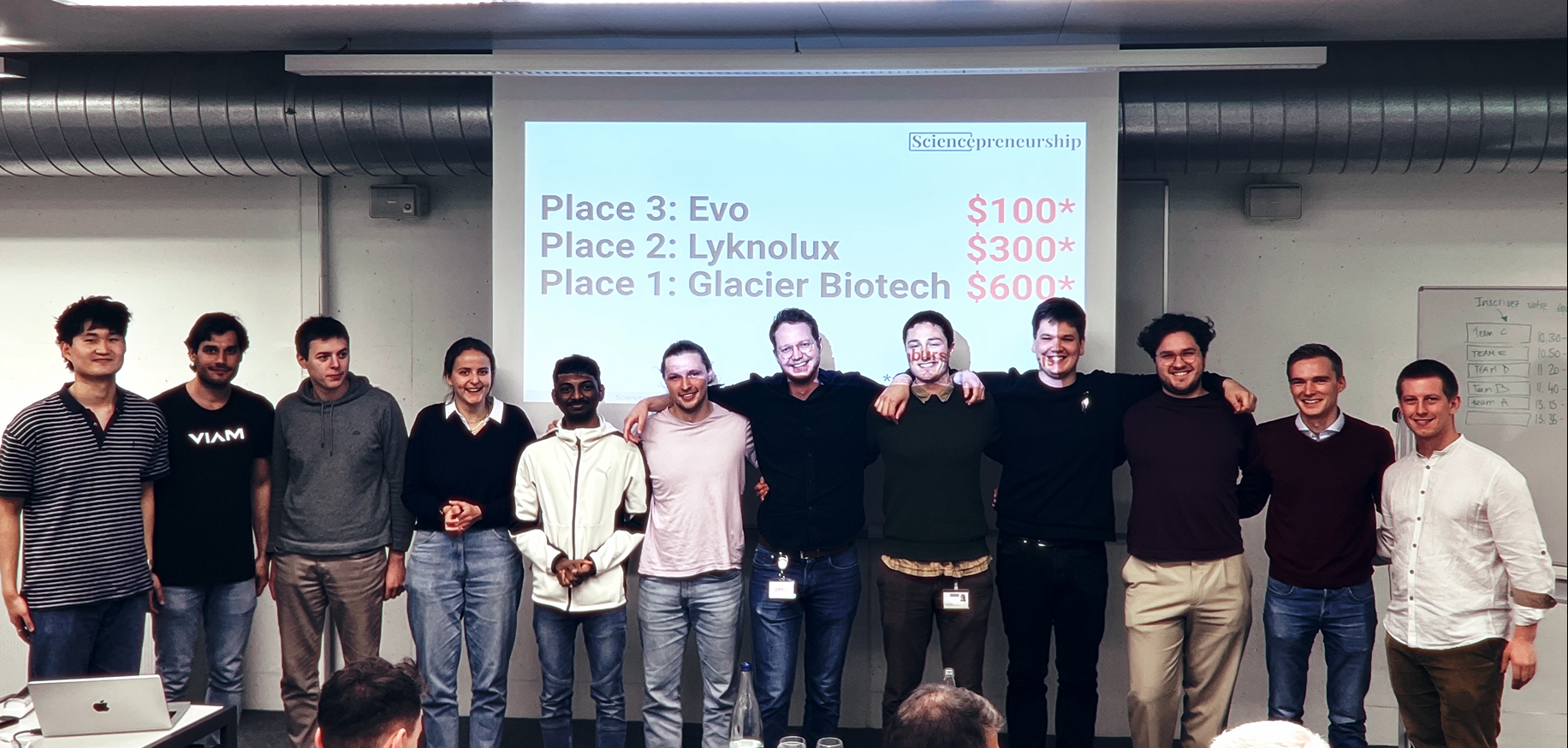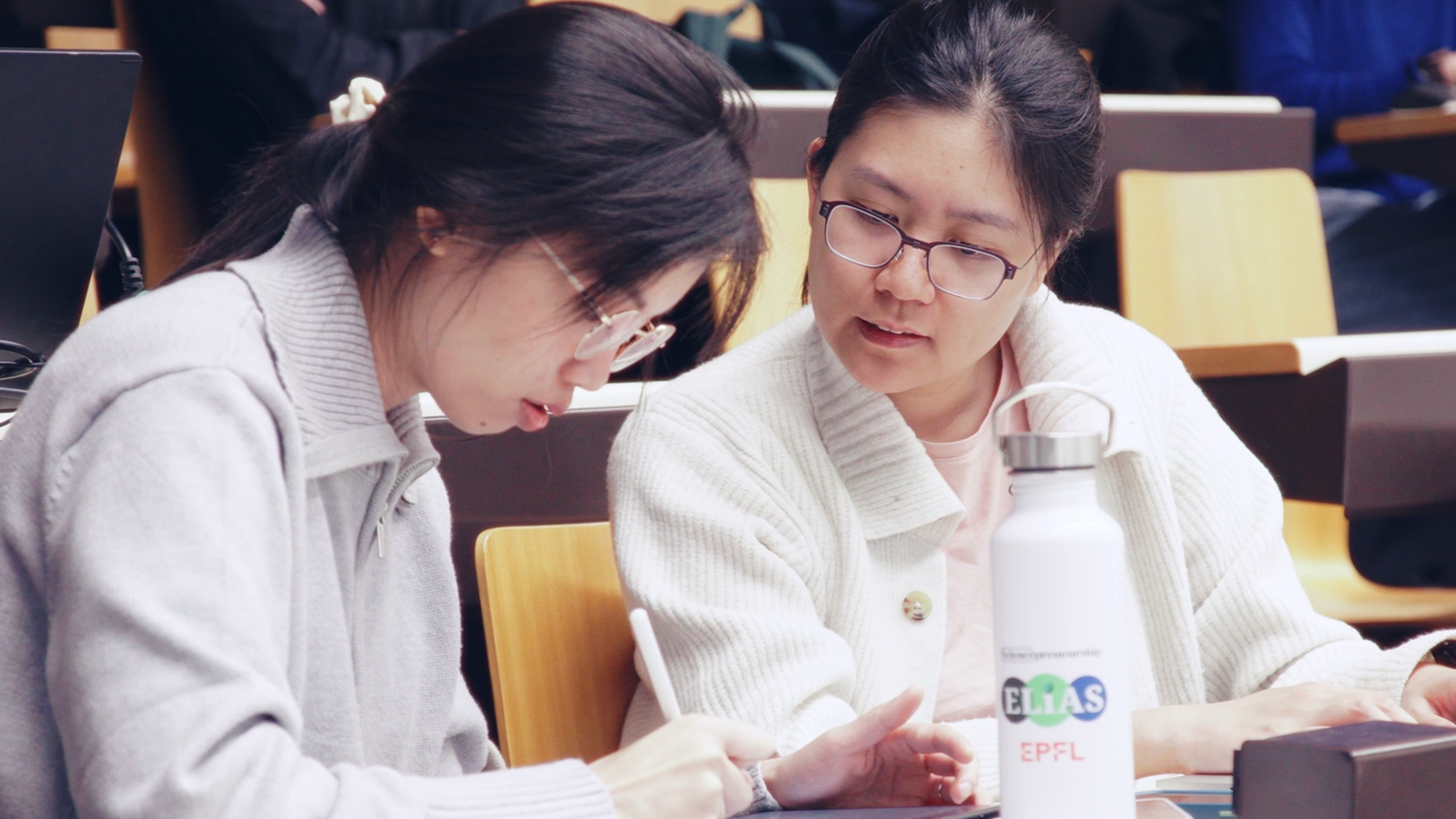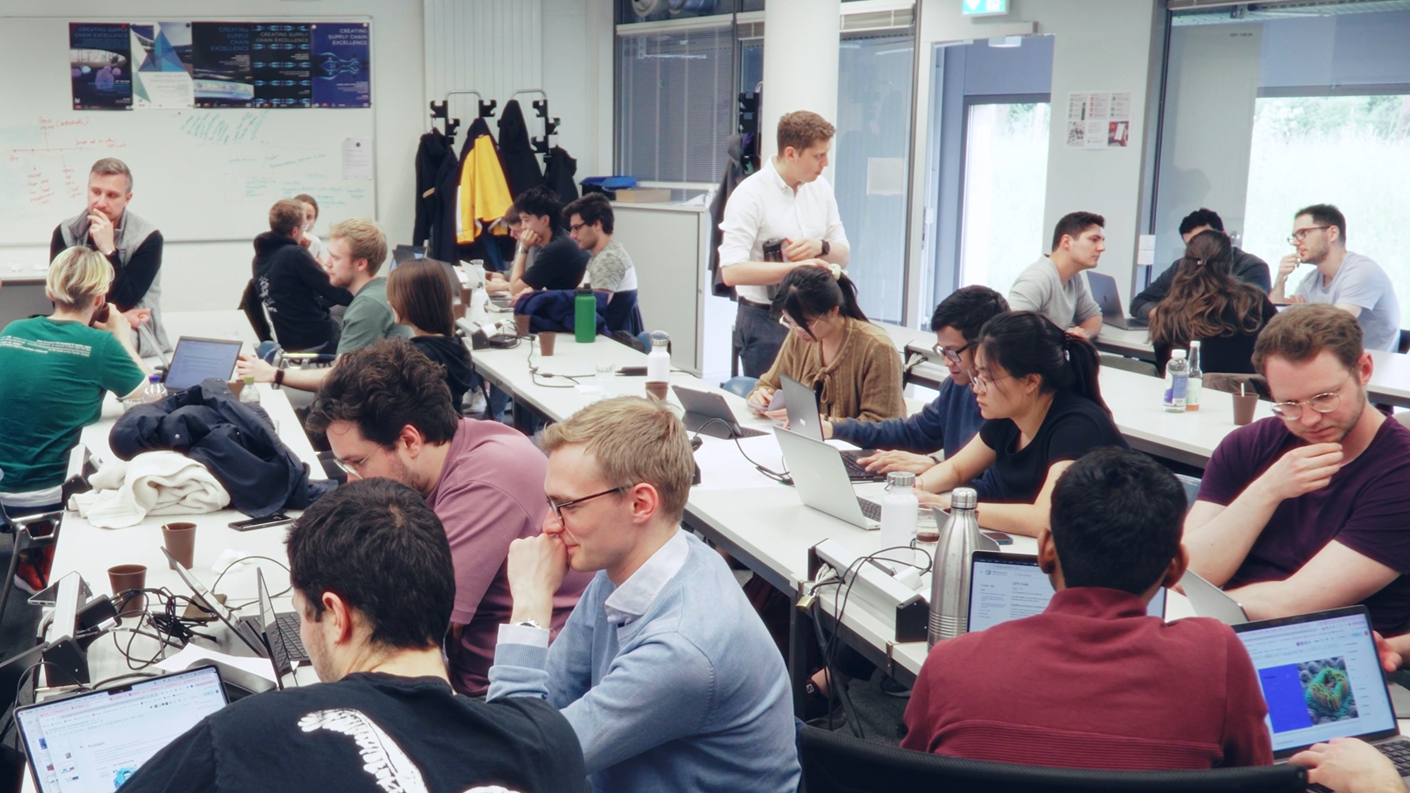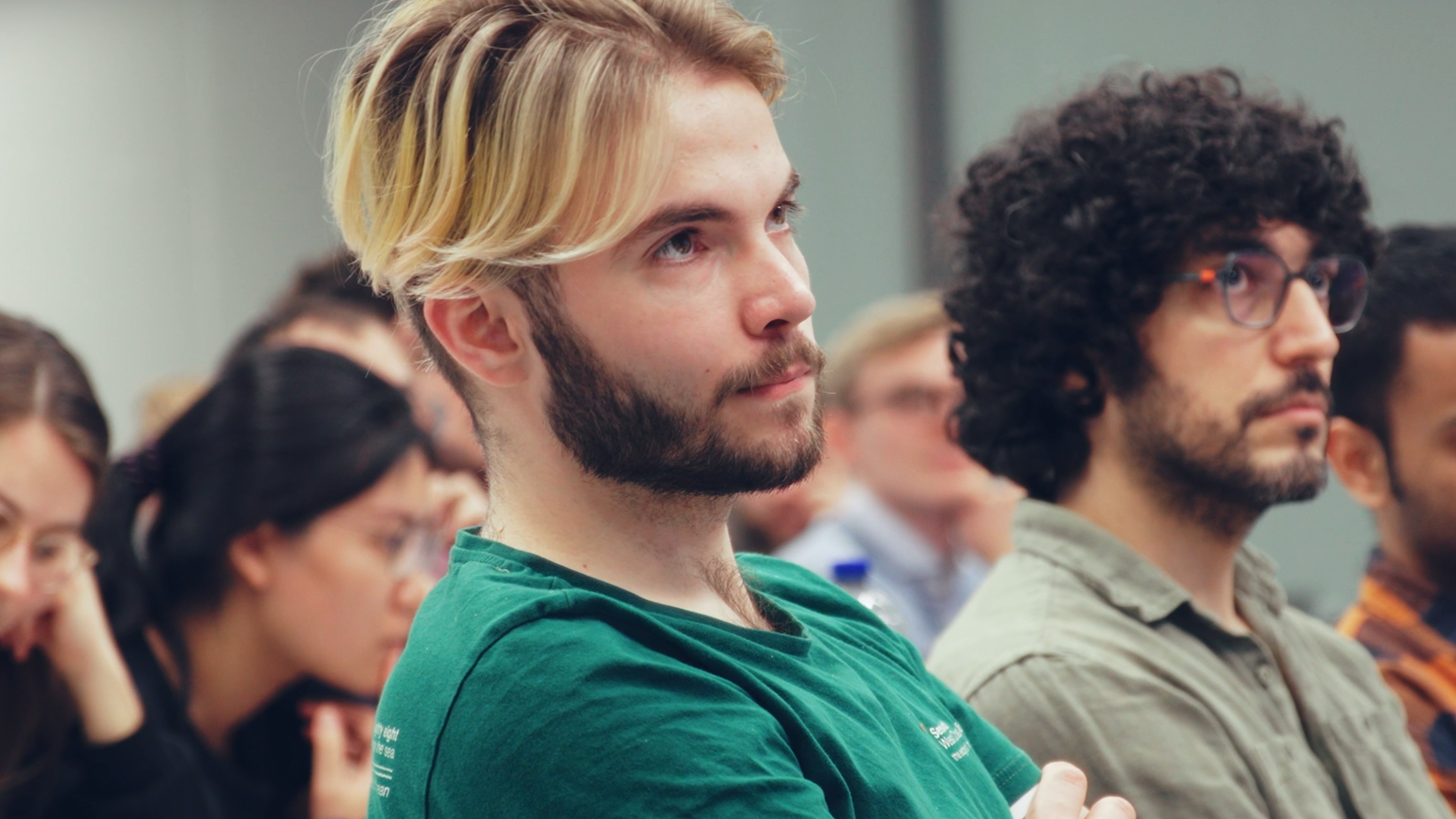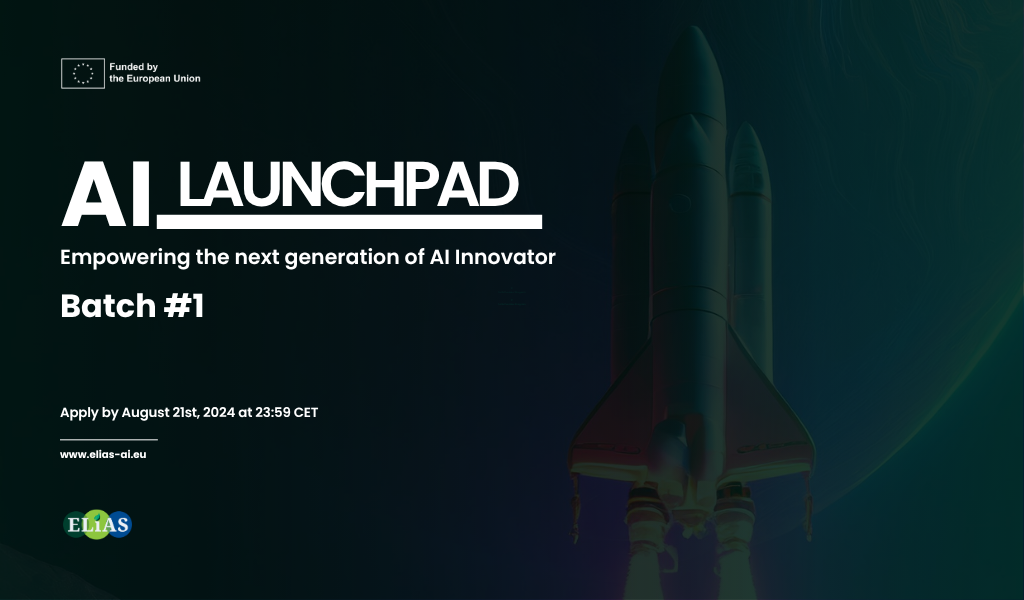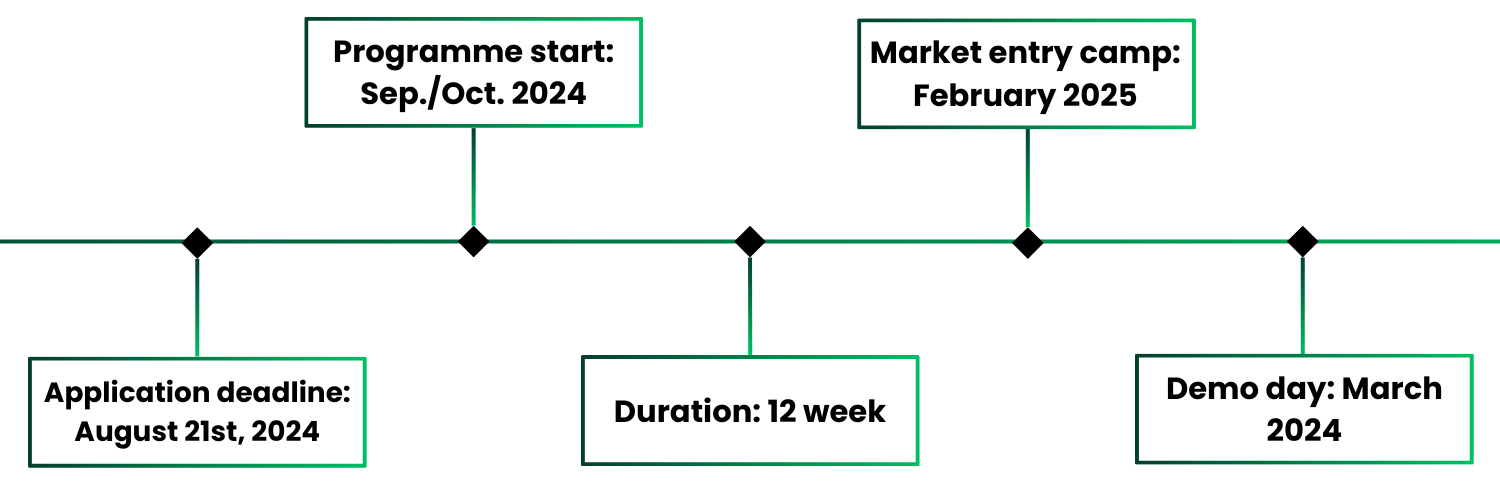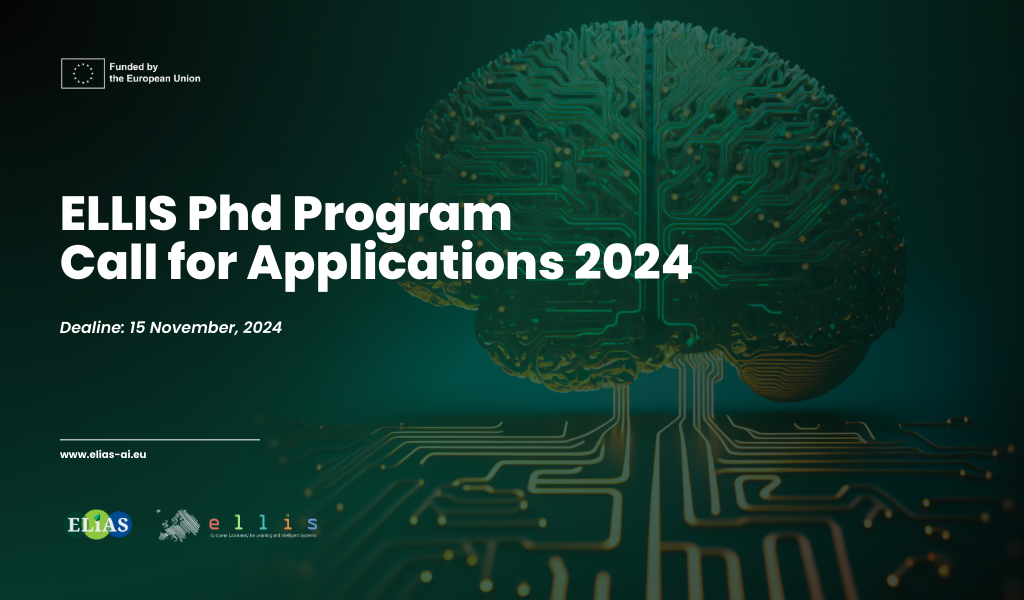
ELLIS PhD Program: Call for applications 2024

The ELLIS PhD program is a key pillar of the ELLIS initiative whose goal is to foster and educate the best talent in machine learning and related research areas by pairing outstanding students with leading academic and industrial researchers in Europe. The program also offers a variety of networking and training activities, including summer schools and workshops. Each PhD student is co-supervised by one ELLIS fellow/scholar or unit faculty and one ELLIS fellow/scholar, unit faculty or member based in different European countries. Students conduct an exchange of at least 6 months with the international advisor during their degree. One of the advisors may also come from industry, in which case the student will collaborate closely with the industry partner, and spend min. 6 months conducting research at the industrial lab. A new interdisciplinary track has also recently been introduced, in which students are co-supervised by an ELLIS fellow/scholar and a tenured faculty (if they are not an ELLIS fellow/scholar themselves), whose main expertise is different than machine learning/AI (for instance, biology, law or social sciences and humanities). For more information, the specific requirements for each track can be found down below or here.
Research Areas
AutoML • Bayesian & Probabilistic Learning • Bioinformatics • Causality • Computational Neuroscience • Computer Graphics • Computer Vision • Deep Learning • Earth & Climate Sciences • Health • Human Behavior, Psychology & Emotion • Human Computer Interaction • Human Robot Interaction • Information Retrieval • Interactive & Online Learning • Interpretability & Fairness • Law & Ethics • Machine Learning Algorithms • Machine Learning Theory • ML & Sustainability • ML in Chemistry & Material Sciences • ML in Finance • ML in Science & Engineering • ML Systems • Multi-agent Systems & Game Theory • Natural Language Processing • Optimization & Meta Learning • Privacy • Quantum & Physics-based ML • Reinforcement Learning & Control • Robotics • Robust & Trustworthy ML • Safety • Security, Synthesis & Verification • Symbolic Machine Learning • Unsupervised Learning
ELIAS offers an exceptional opportunity to engage in cutting-edge research across various impactful fields. These include Robust and Trustworthy Machine Learning, ensuring the development of secure and resilient AI systems; Machine Learning in Chemistry and Material Sciences, applying AI to uncover new solutions; Interpretability and Fairness, focusing on transparency and equity in AI models; ML and Sustainability, leveraging AI to address global environmental challenges; Earth and Climate Sciences, advancing understanding of climate change; and Law and Ethics, exploring the legal and moral dimensions of AI. This is a unique chance to contribute to critical interdisciplinary research at the forefront of technology.
How to apply
Interested candidates should apply online through the ELLIS application portal by November 15th, 2024, 23:59 CET. Applicants first need to register on the portal. After registering, applicants will receive their login details for the portal and can submit their application via apply.ellis.eu. Please read our FAQs and webpage before applying, as well as the details below. Only complete applications will be considered.
Important dates:
- October 2024: Application portal opens
- November 15, 2024, 23:59 CET: application deadline (firm)
- November/December 2024: review stage
- January/February 2025: interview stage
- Late February/March 2025: decisions
- Program start: there is no common start for the PhD (depends on the advisor/institution)
Diversity & Inclusion
ELLIS values diversity and seeks to increase the number of women in areas where they are underrepresented. We therefore explicitly encourage women to apply. We are also committed to recruiting more people living with disabilities and strongly encourage them to apply.
Admission to the program is competitive. In a typical round, less than 5% of all registered applicants, and between 5-10% of eligible applicants are accepted. Based on previous rounds, we expect that about 150 advisors in the ELLIS network will be participating in the upcoming round.
Additional information
Advisor and time-sharing requirements
ELLIS PhDs are co-supervised by one ELLIS fellow/scholar/unit faculty and one ELLIS fellow/scholar/member, both based in Europe. During the selection process, the main focus will be on finding a match with the primary advisor. A list of available advisors with open positions will be published on the application portal. Only advisors who participate in the current call (i.e. those that are listed on the portal in the “Advisor List”) are eligible to recruit ELLIS PhDs.
Finding a co-advisor can be done at a later stage, up to 5 months after acceptance to the program. The primary advisor and student decide on a co-advisor together.
Exchange and time-sharing:
- Academic Track: During their appointment, the PhD student must visit the secondary advisor in a different European* country for min. 6 months (partitioning of the time is flexible). *Exception: In the academic track, the co-supervisor can be based outside of Europe, but must in that case be an ELLIS fellow or scholar.
- Industry Track: The candidate will spend a minimum of 50% of their time at the academic partner institution and a minimum of 6 months with the industry partner. This can be accumulative (e.g. 2 days per week) or consecutive. The industry partner, industrial research lab, and industry advisor must all be based in Europe (regardless of HQ location), but can otherwise be in the same country/city as the academic partner.
- Interdisciplinary Track: The PhD student will spend a minimum of 50% of their time with their primary advisor and a minimum of 6 months** with the secondary advisor (expert in a field unrelated to machine learning/AI). This can be accumulative (e.g. 2 days per week) or consecutive. The secondary advisor must be based in Europe, but can otherwise be in the same country/city/university as the academic partner. **Exception: If both advisors are located in the same university (different departments), then no 6-month visit is required, but the PhD candidate should meet regularly with their second advisor. Additionally, in that case, the student is then encouraged to spend at least one month abroad during their thesis.
- The PhD degree must come from a European institution.
Application process
As part of the application procedure, you will be able to indicate preferences for specific research areas and potential supervisors who are participating in this year’s current recruiting round. The list of ELLIS advisors who are recruiting and their research areas will be available on the application portal. For questions about eligibility, please see our FAQs. Note that in the current call, ELLIS faculty are looking to recruit new students; if you’re already doing a PhD with an ELLIS advisor and are interested in the ELLIS PhD program, please read this FAQ.
Important note:
Some of the listed advisors on the portal will mention in their profile that their institution requires you to apply in parallel through their official channels (referred to as “Parallel application necessary? Yes.”).
Some institutions do not accept graduate students throughout the year, but have strict deadlines for applying to their graduate programs (for instance, December or earlier) which overlap with the call’s timeline. In this case, you should not wait until the ELLIS selection procedure has ended, but apply in parallel through the advisor’s institution. If you do not, or fail to meet the deadline, you might have to wait until the next year to enrol as a PhD student, despite having received an offer prior. In a worst case scenario, this might even jeopardise your offer as the advisor might not be in a position to wait/will lose the funding for this particular PhD position if the deadline is not met.
If unsure, visit the website of the institution or contact your preferred advisor. It’s safest to apply to both programs in parallel to avoid any delays in the starting date of your contract.
The application consists of three parts:
(1) Application form. In the application form, you provide your personal details, indicate your preferences for research fields and advisors and list relevant degrees and experience.
(2) Documents. You will need to upload the following documents (as PDFs):
- A two-page motivational letter in which you (1) explain why you want to earn a PhD within the ELLIS network and (2) include a research statement describing past research projects and interests as well as the future direction of your research. (Optional: In addition to (1) and (2), you may also mention specific advisors you are interested in working with.)
- Your current CV that details your educational background, work experience, full citations of any publications you may have, any research presentations you have given, and any awards you have received.
- Unofficial transcripts of all of your university studies (BSc, MSc), as well as a translation into English.
- Optionally, additional documents such as a thesis, published paper, or project portfolio, (or parts thereof) as a single PDF (<20 MB).
(3) References. You will also be asked to provide the contact details of min. 2 referees (max. 3) who have agreed to submit a reference. You should contact your referees personally before you send a formal request via the portal. Contacting your referees directly beforehand ensures that they are willing to write a strong recommendation and will have the time to do so before the specified deadline. Recommendation letters must be requested via the portal before the application deadline on November 15(*). After you’ve requested a reference, the referee will be contacted via the system to submit their recommendation by November 25.
Choose your referees carefully and think about who is best qualified to write you a strong recommendation. Referees must be able to assess your academic performance and research abilities. At least two of the referees should be professionally established at the level of independent investigator, principal scientist, group leader, lecturer or above. A maximum of one reference may come from a postdoc. We recommend that you include the principal investigator who supervised your thesis work. Professional references are accepted, as long as the referee can comment on your academic/research abilities (e.g. referees from industrial research labs). References from PhD students or class mates are not accepted.
(*) Applicants must submit their reference requests via the portal BEFORE the general application deadline on November 15, 2024 (23:59 CET). After receiving the request, referees have time until November 25, 2024 (23:59 CET) to submit their recommendation. Note that it will NOT be possible for applicants to request a reference or to send a reminder via the portal after the application deadline on November 15, 23:59 CET. Also, all the other components of the application (application form, documents) need to be completed before November 15, 23:59 CET, in order to be considered. Applications that are missing the necessary number of reference letters by November 25, 23:59 CET, are incomplete and are no longer considered in the selection process.
Contact
phd@ellis.eu – PhD Coordination Office
The ELLIS PhD Program has received funding from the European Union’s Horizon 2020 research and innovation programme under ELISE Grant Agreement No. 951847 (2020 – 2024), and is continued with funding from the Horizon Europe research and innovation programme under ELIAS grant agreement number 101120237 (2023 – 2027). The program is also expanded by the EU-funded project ELSA under grant agreement number 101070617 (2022 – 2025).
